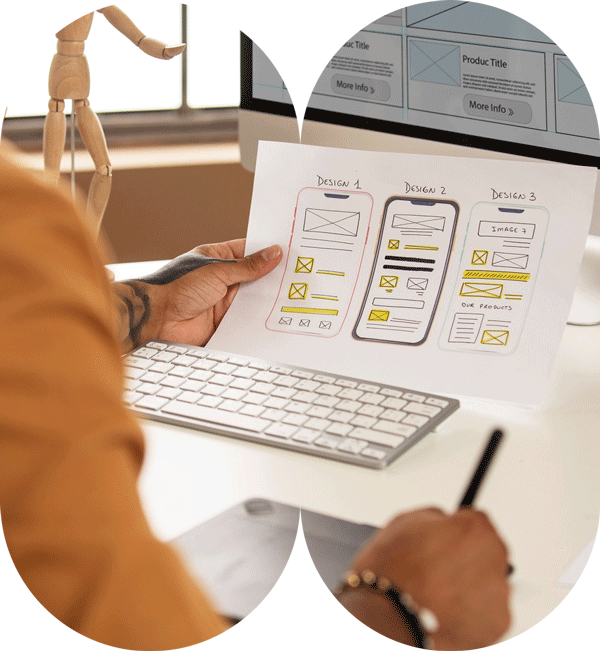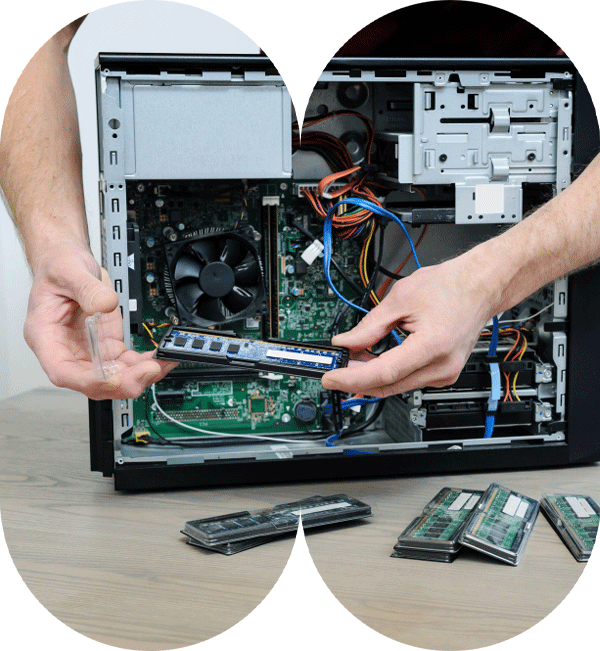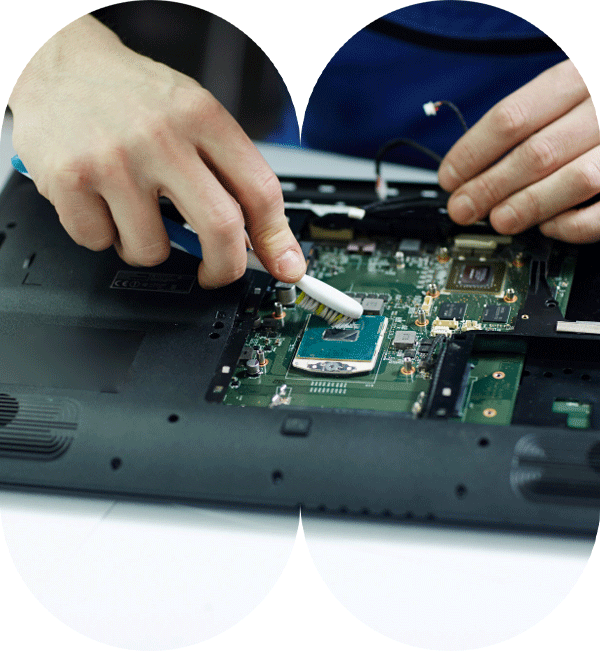E-Commerce
We offer a wide range of dynamic courses that cater to your unique educational and career goals.

Web Designing
Web design is the art of crafting and structuring websites, covering a spectrum of tasks. This includes planning the layout and user interface, designing visual elements like graphics, images, and typography, developing functionality encompassing navigation and forms, and ensuring compatibility across various browsers and devices.
Diploma in Web Designing - Benifits
A Diploma in Web Designing is a program that prepares students for a career in web design. Web designers create and develop websites. They work with clients to understand their needs and goals, and then design and build websites that meet those needs. Web designers use a variety of tools and technologies to create websites, including HTML, CSS, and JavaScript.
The program typically covers topics such as:
- Fundamentals of web design
- HTML, CSS, and JavaScript
- Responsive web design
- Web accessibility
- User experience (UX) design
- User interface (UI) design
- Search engine optimization (SEO)
- Content management systems (CMS)
- Web design software
In addition to the core curriculum, students in a Diploma in Web Designing program may also learn about:
- Web development
- E-commerce
- Web analytics
- Web security
- Web hosting
- Web design ethics
Benefits of a Diploma in Web Designing
There are many benefits to pursuing a Diploma in Web Designing, including:
- Increased earning potential: Web designers typically earn a good salary.
- Career advancement: A Diploma in Web Designing can help students advance their careers in the web design industry. For example, students may be able to move into management positions or specialize in a particular area of web design, such as e-commerce web design or UX/UI design.
- Enhanced skills and knowledge: A Diploma in Web Designing can provide students with the skills and knowledge they need to be successful in the web design industry. Students will learn about the fundamentals of web design, HTML, CSS, and JavaScript, responsive web design, web accessibility, UX/UI design, SEO, CMS, and web design software.
- Job security: The job outlook for web designers is expected to grow faster than average over the next decade. This is due to the increasing demand for websites and web designers to create and maintain them.
Demand for Web Designers
The demand for web designers is growing rapidly. This is due to a number of factors, including:
- The increasing importance of the internet: The internet is becoming increasingly important in our personal and professional lives. Businesses and organizations of all sizes rely on websites to communicate with their customers and clients.
- The growth of e-commerce: E-commerce is growing rapidly, and this is leading to an increased demand for web designers who can create e-commerce websites.
- The rise of social media: Social media platforms such as Facebook and Twitter are visually driven platforms. This has led to an increased demand for web designers who can create visually appealing and engaging content for social media.
Global universities offering this course:
- University of California, Los Angeles (UCLA)
- New York University (NYU) School of Professional Studies
- Columbia University School of Professional Studies:
- Boston University Metropolitan College
- American Skill University
- University of Southern Queensland (USQ)
- Charles Darwin University (CDU).
Diploma in Web Designing - Syllabus
Semester 1
Module 1: Introduction to Web Designing:
What is web designing?
The different types of web designing
Career opportunities in web designing
Professional ethics and conduct
Module 2: HTML and CSS:
The basics of HTML and CSS
How to create and edit HTML and CSS documents
How to use HTML and CSS to design and style web pages
Module 3: JavaScript:
The basics of JavaScript
How to create and edit JavaScript code
How to use JavaScript to add interactivity to web pages
Module 4: Responsive Web Design:
What is responsive web design?
Why is responsive web design important?
How to design and develop responsive web pages
Module 5: Web Design Tools and Software:
The most popular web design tools and software
How to use web design tools and software to create and edit web pages
Semester 2
Module 6: Content Management Systems (CMS):
What are CMS?
The most popular CMS platforms
How to use CMS platforms to create and manage websites
Module 7: Web Design Accessibility:
What is web design accessibility?
Why is web design accessibility important?
How to design and develop accessible websites
Module 8: Web Design Security:
Web design security threats and vulnerabilities
How to protect your websites from security threats
Web design security best practices
Module 9: Web Design Performance Optimization:
How to measure web page performance
Techniques for optimizing web page performance
Web design performance optimization best practices
Module 10: Web Design Professional Development:
Networking and building relationships in the web design industry
Continuing professional development in web design
Building your personal brand as a web designer
Reference Books:
Don't Make Me Think, Revisited: A Common Sense Approach to Web Usability by Steve Krug
HTML and CSS: Design and Build Websites by Jon Duckett
JavaScript and JQuery: Interactive Front-End Web Development by Jon Duckett
Responsive Web Design by Ethan Marcotte
Web Design for Everyone: A Step-by-Step Guide by Chris Coyier
Journals:
Web Designer
Smashing Magazine
A List Apart
Codrops
Awwwards
Related Websites:
W3Schools
Mozilla Developer Network
Google Developers
Microsoft Developer Network
SitePoint
Useful YouTube Links:
The Net Ninja
Traversy Media
Codecourse
DevEd
freeCodeCamp.org
Ted Talks:
The Beauty of Code by Jeff Dean
The Future of the Web by Tim Berners-Lee
The Power of Open Source Software by Matt Mullenweg
How to Design for the Real World by Jakob Nielsen
The Importance of Web Accessibility by Shawn Lawton Henry
Audio Books:
Don't Make Me Think, Revisited: A Common Sense Approach to Web Usability by Steve Krug
HTML and CSS: Design and Build Websites by Jon Duckett
JavaScript and JQuery: Interactive Front-End Web Development by Jon Duckett
Responsive Web Design by Ethan Marcotte
Web Design for Everyone: A Step-by-Step Guide by Chris Coyier
Digital Marketing
Digital marketing entails harnessing digital channels for the promotion of products and services to both consumers and businesses. These dynamic channels encompass search engines, social media platforms, email, and websites. Digital marketing emerges as a potent tool for reaching and engaging diverse audiences, with a demonstrated ability to drive sales and nurture lead generation.
The landscape of digital marketing comprises several distinct strategies, including search engine optimization (SEO), Pay-per-click (PPC) advertising, social media marketing, email marketing, and content marketing, each offering a unique approach to building a digital presence and achieving marketing objectives.


Diploma in Digital Marketing - Benifits
Course Introduction
A Diploma in Digital Marketing is a vocational qualification that teaches students the skills they need to create and manage successful digital marketing campaigns.
The course covers a wide range of topics, including:
- Search engine optimization (SEO)
- Pay-per-click (PPC) advertising
- Social media marketing
- Content marketing
- Email marketing
- Web analytics
- Conversion rate optimization (CRO)
Benefits
The benefits of completing a Diploma in Digital Marketing include:
- Increased job prospects: Digital marketing is one of the most in-demand skills in the world today, and there is a shortage of qualified digital marketing professionals.
- Higher salaries: Digital marketing professionals earn some of the highest salaries in the marketing industry.
- Career advancement: A Diploma in Digital Marketing can open up opportunities for advancement into senior digital marketing roles.
- Ability to work on a variety of projects: Digital marketing professionals have the opportunity to work on a variety of projects, from developing and managing social media campaigns to creating and optimizing websites for search engines.
- Become a freelancer or start your own business: With the skills you learn in a Diploma in Digital Marketing course,you can become a freelancer or start your own digital marketing agency.
List of Prominent Global Universities Offering Diploma in Digital Marketing
The following are some of the most prominent global universities offering Diploma in Digital Marketing courses:
- Stanford University (USA)
- Massachusetts Institute of Technology (USA)
- American Skill University (USA)
- University of Oxford (UK)
- University of Cambridge (UK)
- Imperial College London (UK)
Diploma in Digital Marketing - Syllabus
Semester 1
Module 1: Introduction to Digital Marketing:
What is digital marketing?
The different types of digital marketing
The importance of digital marketing
How to create and implement a digital marketing strategy
Module 2: Search Engine Optimization (SEO):
What is SEO?
How SEO works
How to optimize your website for SEO
How to track and measure SEO results
Module 3: Search Engine Marketing (SEM):
What is SEM?
How SEM works
How to create and manage SEM campaigns
How to track and measure SEM results
Module 4: Social Media Marketing:
What is social media marketing?
The different social media platforms
How to create and implement a social media marketing strategy
How to track and measure social media marketing results
Module 5: Content Marketing:
What is content marketing?
How to create and distribute high-quality content
How to promote your content
How to track and measure content marketing results
Semester 2
Module 6: Email Marketing:
What is email marketing?
How to build an email list
How to create and send effective email campaigns
How to track and measure email marketing results
Module 7: Affiliate Marketing:
What is affiliate marketing?
How to choose the right affiliate programs
How to promote affiliate products and services
How to track and measure affiliate marketing results
Module 8: E-Commerce Marketing:
What is e-commerce marketing?
How to create and manage an e-commerce store
How to promote your e-commerce store
How to track and measure e-commerce marketing results
Module 9: Digital Analytics:
What is digital analytics?
How to use Google Analytics
How to track and measure your website traffic
How to use digital analytics to improve your digital marketing campaigns
Module 10: Digital Marketing Professional Development:
Networking and building relationships in the digital marketing industry
Continuing professional development in digital marketing
Building your personal brand as a digital marketer
Reference Books:
Digital Marketing for Dummies by Ryan Deiss and Russ Henneberry
The Lean Startup by Eric Ries
Traction by Gabriel Weinberg and Justin Mares
Growth Hacker Marketing by Ryan Holiday
Permission Marketing by Seth Godin
Journals:
MarketingProfs
Adweek
eMarketer
Search Engine Land
Social Media Examiner
Related Websites:
Google Marketing Platform
HubSpot Academy
Moz Academy
Udemy
Coursera
Useful YouTube Links:
HubSpot
Moz
Neil Patel
Gary Vaynerchuk
Ahrefs
Ted Talks:
The Future of Marketing by Seth Godin
The Power of Storytelling by Brené Brown
The Importance of Data-Driven Marketing by Avinash Kaushik
The Future of Content Marketing by Joe Pulizzi
The Power of Social Influence by Robert Cialdini
Audio Books:
Digital Marketing for Dummies by Ryan Deiss and Russ Henneberry
The Lean Startup by Eric Ries
Traction by Gabriel Weinberg and Justin Mares
Growth Hacker Marketing by Ryan Holiday
Permission Marketing by Seth Godin

Photoshop & Animation
While distinct fields, Photoshop and animation can harmoniously converge to yield spectacular results. Photoshop, renowned for its robust image editing capabilities, serves as a dynamic tool for image creation and manipulation. On the other hand, animation is the art of breathing life into still images, transforming them into captivating, moving visuals.
The synergy between Photoshop and animation unfolds through several avenues. One method involves crafting frame-by-frame animations within Photoshop, whereby a sequence of images is artfully created and played sequentially to birth animated content. Another avenue harnesses Photoshop’s Timeline feature, enabling the orchestration of animations by orchestrating object movement and transformations over time. This fusion of digital artistry and motion engineering opens up a realm of creative possibilities, presenting a canvas for producing visually stunning animations.
Diploma in Photoshop and Animation - Benifits
A Diploma in Photoshop and Animation is a program that prepares students for a career in the field of digital graphics and animation. The program typically covers topics such as:
- Introduction to Photoshop
- Image editing
- Photo manipulation
- Digital painting
- Animation principles and practices
- Motion graphics
- Video editing
- 3D animation
In addition to the core curriculum, students in a Diploma in Photoshop and Animation program may also learn about:
- Typography
- Color theory
- Design principles
- Web design
- Game design
- Digital storytelling
Benefits of a Diploma in Photoshop and Animation
There are many benefits to pursuing a Diploma in Photoshop and Animation, including:
- Increased earning potential: Digital graphics and animation professionals typically earn a good salary. The median annual wage for graphic designers was $50,710 in May 2021, and the median annual wage for animators and multimedia artists was $77,200 in May 2021.
- Career advancement: A Diploma in Photoshop and Animation can help students advance their careers in the digital graphics and animation industry.For example, students may be able to move into management positions or become freelance designers or animators.
- Enhanced skills and knowledge: A Diploma in Photoshop and Animation can provide students with the skills and knowledge they need to be successful in the digital graphics and animation industry. Students will learn about image editing, photo manipulation,digital painting, animation principles and practices, motion graphics, video editing, and 3D animation.
- Creative fulfillment: A Diploma in Photoshop and Animation can provide students with the opportunity to express their creativity and create beautiful and engaging works of art.
Demand for Digital Graphics and Animation Professionals
The demand for digital graphics and animation professionals is growing rapidly. This is due to a number of factors, including:
- The increasing popularity of digital media: Digital media, such as websites,videos, and social media, is becoming increasingly popular. This is creating new opportunities for digital graphics and animation professionals to create content for these platforms.
- The growing demand for digital advertising: Digital advertising is becoming increasingly common, as businesses look to reach their target audiences online. This is creating new opportunities for digital graphics and animation professionals to create visually appealing and effective ads.
- The expanding global digital media industry: The global digital media industry is expanding rapidly, as new markets are opening up. This is creating new opportunities for digital graphics and animation professionals to work on projects from all over the world.
Global universities offering this course:
- United States:
- Colorado Technical University,
- New York Film Academy,
- American Skill University
- United Kingdom:
- Ravensbourne University London,
- Bournemouth University
- Australia:
- Deakin University,
- Royal Melbourne Institute of Technology (RMIT University.
Diploma in Photoshop and Animation - Syllabus
Semester 1
Module 1: Introduction to Photoshop:
What is Photoshop?
The different tools and features in Photoshop
How to use Photoshop to edit and manipulate images
Module 2: Photoshop for Beginners:
The basics of image editing in Photoshop
How to crop, resize, and rotate images
How to adjust the brightness, contrast, and color of images
How to remove blemishes and imperfections from images
Module 3: Photoshop for Intermediate Users:
More advanced image editing techniques in Photoshop
How to use layers and masks
How to create and edit selections
How to use filters and effects
Module 4: Photoshop for Advanced Users:
Complex image editing techniques in Photoshop
How to create and edit composite images
How to use Photoshop to create digital art
How to prepare images for print and web
Module 5: Introduction to Animation:
What is animation?
The different types of animation
The principles of animation
Semester 2
Module 6: 2D Animation:
The basics of 2D animation
How to create and edit 2D animations
How to use 2D animation software
Module 7: 3D Animation:
The basics of 3D animation
How to create and edit 3D animations
How to use 3D animation software
Module 8: Motion Graphics:
What is motion graphics?
How to create and edit motion graphics
How to use motion graphics software
Module 9: Animation for Film and Video:
How to use animation in film and video
How to create and edit animations for film and video
How to export animations for film and video
Module 10: Animation Professional Development:
Networking and building relationships in the animation industry
Continuing professional development in animation
Building your personal brand as an animator
Reference Books:
Adobe Photoshop for Beginners: A Step-by-Step Guide to Learning Photoshop by Alan Sharpe
Adobe Photoshop Classroom in a Book by Adobe Creative Team
The Animator's Survival Kit by Richard Williams
The Illusion of Life: Disney Animation by Frank Thomas and Ollie Johnston
Stop-Motion Animation: Frame-by-Frame Filmmaking by Willis O'Brien
Journals:
Animation World Network
Animation Magazine
CTN Animation Expo
SIGGRAPH
Animation Society
Related Websites:
Adobe
Pixar
DreamWorks
Cartoon Network
Nickelodeon
Useful YouTube Links:
Adobe Creative Cloud
Skillshare
Envato Tuts+
CreativeLive
The Future
Ted Talks:
The Power of Animation by Glen Keane
The Future of Animation by John Lasseter
The Importance of Animation in Storytelling by Brenda Chapman
The Beauty of Stop-Motion Animation by Nick Park
The Power of Animation to Change the World by Al Gore
Audio Books:
Adobe Photoshop for Beginners: A Step-by-Step Guide to Learning Photoshop by Alan Sharpe
Adobe Photoshop Classroom in a Book by Adobe Creative Team
The Animator's Survival Kit by Richard Williams
The Illusion of Life: Disney Animation by Frank Thomas and Ollie Johnston
Stop-Motion Animation: Frame-by-Frame Filmmaking by Willis O'Brien
Graphic Designing
Graphic design is both an art and a craft, entailing the strategic arrangement of visual communication elements. It’s the skillful process of conveying ideas and messages through the interplay of typography, imagery, and color. This creative discipline finds its application in diverse contexts, spanning print and digital advertising, product packaging, website aesthetics, and the development of signage.
Graphic designers wield a rich arsenal of tools and techniques to breathe life into their creations. Their toolkit includes traditional implements like pencils, pens, and markers, as well as digital resources such as Adobe Illustrator and Photoshop. To master this craft, graphic designers delve into the realm of typography, color theory, and composition, weaving them together to produce compelling and communicative visual narratives.

Diploma in Graphic Designing - Benifits
A Diploma in Graphic Designing is a program that prepares students for a career in graphic design. Graphic designers create visual concepts, using computer software or by hand, to communicate ideas that inspire, inform, and captivate consumers. They develop the overall layout and production design of magazines, newspapers, annual reports, websites, product packaging, and other materials.
Graphic design is a broad field that encompasses many different disciplines, including:
- Visual communication: Graphic designers use visual elements such as color, shape, line, and texture to communicate ideas.
- Typography: Graphic designers choose and arrange typefaces to create readable and visually appealing text.
- Illustration: Graphic designers create illustrations to enhance the visual appeal of a design and to communicate complex ideas in a simple and effective way.
- Layout: Graphic designers arrange elements on a page or screen to create a visually appealing and functional design.
- Color theory: Graphic designers understand how colors interact with each other to create different effects.
- Production: Graphic designers work with printers and other production professionals to ensure that their designs are reproduced accurately.
The program typically covers topics such as:
- Basic principles of graphic design
- Digital design tools and software
- Typography
- Color theory
- Layout and composition
- Illustration
- Web design
- Motion graphics
- Design thinking
In addition to the core curriculum, students in a Diploma in Graphic Designing program may also learn about:
- Brand identity design
- Packaging design
- Editorial design
- Advertising design
- Environmental design
- User experience (UX) design
- User interface (UI) design
Benefits of a Diploma in Graphic Designing
There are many benefits to pursuing a Diploma in Graphic Designing, including:
- Increased earning potential: Graphic designers typically earn a good salary.
- Career advancement: A Diploma in Graphic Designing can help students advance their careers in the graphic design industry. For example, students may be able to move into management positions or specialize in a particular area of graphic design, such as brand identity design or packaging design.
- Enhanced skills and knowledge: A Diploma in Graphic Designing can provide students with the skills and knowledge they need to be successful in the graphic design industry. Students will learn about the basic principles of graphic design, digital design tools and software, typography, color theory,layout and composition, illustration,web design, motion graphics, and design thinking.
- Job security: The job outlook for graphic designers is expected to grow faster than average over the next decade. This is due to a number of factors, including the increasing demand for visually appealing and informative content.
Demand for Graphic Designers
The demand for graphic designers is growing rapidly. This is due to a number of factors, including:
- The increasing importance of visual communication: In today's digital world, visual communication is more important than ever before. Businesses and organizations are increasingly using graphic design to communicate their messages to their audiences.
- The growth of e-commerce: The growth of e-commerce has led to an increased demand for product packaging and website design.
- The rise of social media: Social media platforms such as Instagram and TikTok are visually driven platforms. This has led to an increased demand for graphic designers who can create visually appealing and engaging content for social media.
Global universities offering this course:
- University of California, Los Angeles (UCLA) Extension:
- New York University (NYU) School of Professional Studies:
- American Skill University
- Columbia University School of Professional
- Boston University Metropolitan College
- Queensland University of Technology (QUT)
Diploma in Graphic Designing - Syllabus
Semester 1
Module 1: Introduction to Graphic Design:
What is graphic design?
The different types of graphic design
Career opportunities in graphic design
Professional ethics and conduct
Module 2: Design Principles and Elements:
The principles of design (balance, contrast, emphasis, movement, pattern, rhythm, unity, and variety)
The elements of design (line, shape, color, texture, and space)
How to use design principles and elements to create effective visual communication
Module 3: Typography:
The different types of fonts
How to choose the right font for your design
How to use typography to create effective visual communication
Module 4: Color Theory
The different types of color
How to create and use color palettes
How to use color to create effective visual communication
Module 5: Design Software:
The most popular graphic design software programs
How to use graphic design software to create and edit designs
Semester 2
Module 6: Branding:
What is branding?
How to create a brand identity
How to use branding to create effective visual communication
Module 7: Logo Design:
The principles of logo design
How to create a successful logo
How to use logos in visual communication
Module 8: Packaging Design:
The principles of packaging design
How to create effective packaging designs
How to use packaging design to promote products and services
Module 9: Publication Design:
The principles of publication design
How to create effective publication designs
How to use publication design to communicate information and ideas
Module 10: Graphic Design Professional Development:
Networking and building relationships in the graphic design industry
Continuing professional development in graphic design
Building your personal brand as a graphic designer
Reference Books:
Graphic Design: The New Basics by Ellen Lupton and Jennifer Cole Phillips
Thinking with Type: A Critical Guide for Designers, Writers, Editors, and Students by Ellen Lupton
The Elements of Color by Johannes Itten
Logo Design Love: A Guide to Creating Iconic Brand Identities by David Airey
Packaging Design: A Complete Guide by Wendy Jedlicka
Journals:
Graphis
Eye on Design
Design Week
Communication Arts
How
Related Websites:
AIGA (American Institute of Graphic Arts)
The Dieline
Design Milk
Creative Bloq
Behance
Useful YouTube Links:
Adobe Creative Cloud
Skillshare
Envato Tuts+
CreativeLive
The Future
Ted Talks:
The Power of Visual Storytelling by David McCandless
The Future of Graphic Design by Paula Scher
The Importance of Design in Everyday Life by Don Norman
The Beauty of Data Visualization by Nadieh Bremer
The Power of Typography by Erik Spiekermann
Audio Books:
Graphic Design: The New Basics by Ellen Lupton and Jennifer Cole Phillips
Thinking with Type: A Critical Guide for Designers, Writers, Editors, and Students by Ellen Lupton
The Elements of Color by Johannes Itten
Logo Design Love: A Guide to Creating Iconic Brand Identities by David Airey
Packaging Design: A Complete Guide by Wendy Jedlicka
Recently

Social Media Influencing
Social media influencing is the process of creating and sharing content on social media platforms to influence the opinions and behaviors of others. Social media influencers typically have a large and engaged following on social media, and they use their platform to promote products, services, and ideas.
There are many different types of social media influencers, including Lifestyle influencers, beauty influencers, fashion influencers, travel influencers, fitness influencers, food influencers, gaming influencers etc. Social media influencing can be a rewarding and lucrative career for those who are able to build a large and engaged following.
Diploma in Social Media Influencing - Benifits
A Diploma in Social Media Influencing is a program that prepares students for a career as a social media influencer. Social media influencers are individuals who have built a large and engaged following on social media platforms such as Instagram, TikTok, and YouTube. They use their platform to promote products and services to their followers.
The program typically covers topics such as:
- Social media platforms and algorithms
- Content creation and curation
- Audience engagement
- Brand partnerships
- Monetization strategies
- Ethics and responsibility
In addition to the core curriculum, students in a Diploma in Social Media Influencing program may also learn about:
- Photography and videography
- Graphic design
- Copywriting
- Video editing
- Social media marketing
Benefits of a Diploma in Social Media Influencing
There are many benefits to pursuing a Diploma in Social Media Influencing, including:
- Increased earning potential: Social media influencers can earn a good income through brand partnerships,sponsored content, and affiliate marketing. The top social media influencers can earn millions of dollars per year.
- Career flexibility: Social media influencing is a relatively new career path, and there are many different ways to be successful. Influencers can choose to work full-time or part-time,and they can specialize in a particular niche or topic.
- Creative freedom: Social media influencers have the freedom to create content that they are passionate about.They can also use their platform to make a positive impact on the world.
Demand for Social Media Influencers
The demand for social media influencers is growing rapidly. This is due to a number of factors, including:
- The growth of social media: Social media platforms are becoming increasingly popular, and more and more people are using them to consume content and make purchase decisions.
- The rise of e-commerce: E-commerce is growing rapidly, and businesses are increasingly looking to social media influencers to promote their products and services.
- The authenticity of social media influencers: Social media influencers are seen as more authentic and relatable than traditional celebrities.This makes them more effective at promoting products and services to their followers.
Global universities offering this course:
- University of California, Los Angeles (UCLA) Extension:
- New York University (NYU) School of Professional Studies:
- Columbia University School of Professional Studies:
- American Skill University
- Queensland University of Technology (QUT)
- University of Southern Queensland (USQ)
Diploma in Social Media Influencing - Syllabus
Semester 1
Module 1: Introduction to Social Media Influencing:
What is social media influencing?
The different types of social media influencers
Career opportunities in social media influencing
Professional ethics and conduct
Module 2: Building Your Social Media Platform:
How to choose the right social media platforms for your audience
How to create engaging content
How to grow your following
How to build relationships with your audience
Module 3: Creating Sponsored Content:
How to find and work with brands
How to create sponsored content that is authentic and engaging
How to disclose sponsored content in accordance with regulations
Module 4: Social Media Analytics:
How to track and analyze your social media performance
How to use social media analytics to improve your content and strategy
Module 5: Social Media Marketing:
How to use social media to promote your products or services
How to run social media advertising campaigns
How to measure the effectiveness of your social media marketing campaigns
Semester 2
Module 6: Social Media Monetization:
How to monetize your social media influence
Different types of social media monetization strategies
How to choose the right monetization strategy for you
Module 7: Social Media Crisis Management:
How to prevent and manage social media crises
How to protect your reputation online
How to recover from a social media crisis
Module 8: Social Media Law and Ethics:
The different laws and regulations that apply to social media influencing
Ethical considerations for social media influencers
How to comply with all applicable laws and regulations
Module 9: Social Media Professional Development:
Networking and building relationships in the social media industry
Continuing professional development in social media influencing
Building your personal brand as a social media influencer
Reference Books:
The Influencer Code by Amanda Russell and Elise Wims
Crushing It! by Gary Vaynerchuk
Jab, Jab, Right Hook by Seth Godin
Platform by Michael Hyatt
Likeable by Dave Kerpen
Journals:
Social Media Quarterly
The Journal of Social Media and Social Networking
Social Media Today
Hootsuite Blog
Social Media Examiner
Related Websites:
Influencer Marketing Hub
Mediakix
BuzzSumo
SproutSocial
Tailwind
Useful YouTube Links:
Social Media Examiner
Gary Vaynerchuk
Neil Patel
Hootsuite
Buffer
Ted Talks:
The Power of Social Media to Change the World by Malala Yousafzai
The Future of Social Media by Brian Solis
Social Media and the Rise of the Influencer by Tiffany Pham
How to Be a Successful Social Media Influencer by Casey Neistat
The Importance of Authenticity in Social Media by Brene Brown
Audio Books:
The Influencer Code by Amanda Russell and Elise Wims
Crushing It! by Gary Vaynerchuk
Jab, Jab, Right Hook by Seth Godin
Platform by Michael Hyatt
Likeable by Dave Kerpen
Recently
Diploma in Mobile App Development
Unlock the potential of mobile technology with our Diploma in Mobile App Development at American Skill University. Dive into the dynamic world of app creation, mastering the latest tools and frameworks. From designing user-friendly interfaces to implementing robust functionalities, this program equips you with the skills to develop cutting-edge mobile applications. Immerse yourself in hands-on projects, learning the intricacies of iOS and Android development. Join us to shape the future of mobile innovation and embark on a rewarding career in the ever-evolving tech landscape.

Diploma in Mobile App Development - Benifits
A Diploma in Mobile App Development is a vocational course that prepares students for a career in developing mobile applications for both Android and iOS platforms. The course typically covers a wide range of topics, including:
- Programming fundamentals (e.g., Java,Kotlin, Swift, etc.)
- Mobile app development tools and frameworks
- User interface design
- User experience design
- Database management
- Testing and debugging
- App deployment and maintenance
In addition to technical skills, the course also teaches students important soft skills such as problem-solving, teamwork, and communication.
Course Content
The specific content of a Diploma in Mobile App Development course will vary depending on the institution offering it. However, most courses will cover the following topics:
- Programming fundamentals: Students will learn the basics of programming,such as variables, data types,conditional statements, loops, and functions. They will also learn about object-oriented programming concepts such as classes and objects.
- Mobile app development tools and frameworks: Students will learn how to use popular mobile app development tools and frameworks, such as Android Studio and Xcode. They will also learn about different mobile app development architectures, such as Model-View-Controller (MVC) and Model-View-Adapter (MVP).
- User interface design: Students will learn how to design user interfaces for mobile apps that are both functional and aesthetically pleasing. They will learn about different UI design principles and best practices.
- User experience design: Students will learn how to design user experiences for mobile apps that are easy to use and enjoyable. They will learn about different UX design principles and best practices.
- Database management: Students will learn how to use databases to store and manage data for mobile apps. They will learn about different database types and how to create and query databases.
- Testing and debugging: Students will learn how to test and debug mobile apps to ensure that they are bug-free and work properly. They will learn about different testing methods and tools.
- App deployment and maintenance:Students will learn how to deploy mobile apps to the Google Play Store and the Apple App Store. They will also learn how to maintain mobile apps and release updates.
Career Opportunities
Graduates of a Diploma in Mobile App Development course can pursue a career in a variety of roles, including:
- Mobile app developer
- Mobile software engineer
- Mobile game developer
- Mobile UI/UX designer
- Mobile QA engineer
- Mobile product manager
Global Universities Offering Diploma in Mobile App Development
Here is a list of global universities offering a Diploma in Mobile App Development:
- Australia: Deakin University, Swinburne University of Technology.
- New Zealand: AUT University, Massey University.
- United Kingdom: University of Greenwich, University of Hertfordshire
- United States: City University of New York, American Skill University
Diploma in Mobile App Development - Syllabus

Diploma in Mobile Game Development
Level up your passion for gaming with our Diploma in Mobile Game Development at American Skill University. This program is your gateway to the exciting realm of creating immersive and engaging mobile games. Dive into the intricacies of game design, graphics, and user experience. Learn to develop captivating gameplay and explore the technical aspects of game programming for iOS and Android platforms. With hands-on projects and guidance from industry experts, you’ll gain the skills to turn your gaming ideas into reality. Join us on this journey to become a skilled mobile game developer and bring your gaming visions to life.
Diploma in Mobile Game Development - Benifits
A Diploma in Mobile Game Development is a vocational course that prepares students for a career in developing mobile games for both Android and iOS platforms.
The course typically covers a wide range of topics, including:
- Programming fundamentals (e.g., Java,Kotlin, Swift, etc.)
- Mobile game development tools and frameworks
- Game design
- Game art
- Game animation
- Game physics
- Game testing
- Game monetization
In addition to technical skills, the course also teaches students important soft skills such as problem-solving, teamwork, and creativity.
Course Content
The specific content of a Diploma in Mobile Game Development course will vary depending on the institution offering it. However, most courses will cover the following topics:
- Programming fundamentals: Students will learn the basics of programming,such as variables, data types,conditional statements, loops, and functions. They will also learn about object-oriented programming concepts such as classes and objects.
- Mobile game development tools and frameworks: Students will learn how to use popular mobile game development tools and frameworks, such as Unity and Unreal Engine. They will also learn about different mobile game development architectures, such as Model-View-Controller (MVC) and Model-View-Adapter (MVP).
- Game design: Students will learn the principles of game design, such as how to create fun and engaging gameplay.They will also learn about different game genres and how to design games for different audiences.
- Game art: Students will learn how to create game art, such as characters,backgrounds, and props. They will learn about different art styles and how to create art that is both visually appealing and optimized for mobile devices.
- Game animation: Students will learn how to animate game characters and objects. They will learn about different animation techniques and how to create animations that are both fluid and natural.
- Game physics: Students will learn how to implement game physics, such as gravity, collision detection, and movement. They will learn about different physics engines and how to use them to create realistic and engaging gameplay.
- Game testing: Students will learn how to test mobile games to ensure that they are bug-free and work properly.They will learn about different testing methods and tools.
- Game monetization: Students will learn how to monetize mobile games through advertising, in-app purchases, and other methods. They will learn about the different monetization strategies and how to choose the right strategy for their game.
Career Opportunities
Graduates of a Diploma in Mobile Game Development course can pursue a career in a variety of roles, including:
- Mobile game developer
- Mobile game artist
- Mobile game animator
- Mobile game tester
- Mobile game producer
- Mobile game publisher
Global Universities Offering Diploma in Mobile Game Development
Here is a list of global universities offering a Diploma in Mobile Game Development:
- Australia: Deakin University, Swinburne University of Technology.
- New Zealand: AUT University, Massey University.
- United Kingdom: University of Greenwich, University of Hertfordshire.
- United States: City University of New York, DeVry University, American Skill University
Diploma in Mobile Game Development - Syllabus
Diploma in Mobile Security
Secure the future of mobile technology with our Diploma in Mobile Security at American Skill University. This comprehensive program equips you with the knowledge and skills to protect mobile applications and data from potential threats. Dive into topics like encryption, secure coding practices, and mobile device management. Learn to identify vulnerabilities and implement robust security measures. With hands-on labs and real-world scenarios, you’ll be prepared to safeguard mobile systems against cyber threats. Join us to become a trusted mobile security professional, contributing to the integrity of digital ecosystems.

Diploma in Mobile Security - Benifits
A Diploma in Mobile Security is a vocational course that prepares students for a career in securing mobile devices and applications.
The course typically covers a wide range of topics, including:
- Mobile operating system security
- Mobile application security
- Mobile network security
- Mobile threat analysis
- Mobile security testing
- Mobile security architecture
- Mobile security best practices
In addition to technical skills, the course also teaches students important soft skills such as problem-solving, teamwork, and communication.
Course Content
The specific content of a Diploma in Mobile Security course will vary depending on the institution offering it. However, most courses will cover the following topics:
- Mobile operating system security:Students will learn about the security features of popular mobile operating systems, such as Android and iOS. They will also learn about the different types of mobile malware and how to protect against them.
- Mobile application security: Students will learn about the different types of mobile application vulnerabilities and how to exploit them. They will also learn about mobile application security best practices, such as code review and penetration testing.
- Mobile network security: Students will learn about the security risks associated with mobile networks, such as 3G, 4G, and 5G. They will also learn about how to secure mobile networks and protect mobile devices from network-based attacks.
- Mobile threat analysis: Students will learn how to analyze mobile threats,such as malware, vulnerabilities, and attack vectors. They will also learn how to use this information to develop and implement security solutions.
- Mobile security testing: Students will learn how to test mobile devices and applications for security vulnerabilities.They will also learn about different mobile security testing tools and techniques.
- Mobile security architecture: Students will learn how to design and implement secure mobile architectures. They will also learn about the different security controls that can be used to protect mobile devices and applications.
- Mobile security best practices:Students will learn about the best practices for securing mobile devices and applications. They will also learn about the different security policies and procedures that can be implemented to improve mobile security.
Career Opportunities
Graduates of a Diploma in Mobile Security course can pursue a career in a variety of roles, including:
- Mobile security engineer
- Mobile security analyst
- Mobile security tester
- Mobile security consultant
- Mobile security architect
- Mobile security product manager
Global Universities Offering Diploma in Mobile Security
Here is a list of global universities offering a Diploma in Mobile Security:
- Australia: Deakin University, Swinburne University of Technology.
- New Zealand: AUT University,Victoria University of Wellington
- United Kingdom: University of Greenwich, University of Hertfordshire.
- United States: City University of New York, American Skill University
Diploma in Mobile Security - Syllabus

Diploma in Mobile Networking
Navigate the dynamic world of mobile connectivity with our Diploma in Mobile Networking at American Skill University. This program is designed to empower you with the expertise needed to build and optimize mobile networks. From 5G technologies to wireless protocols, you’ll gain a deep understanding of mobile communication systems. Engage in hands-on labs to configure and troubleshoot network components. Explore topics like mobile infrastructure design, security, and emerging technologies. Prepare for a career in shaping the future of mobile communication. Join us to transform your passion for technology into a valuable skill set in mobile networking.
Diploma in Mobile Networking - Benifits
A Diploma in Mobile Networking is a vocational course that prepares students for a career in designing, deploying, and managing mobile networks.
The course typically covers a wide range of topics, including:
- Mobile network architectures
- Mobile network protocols
- Mobile network security
- Mobile network performance optimization
- Mobile network troubleshooting
- Mobile network planning and deployment
In addition to technical skills, the course also teaches students important soft skills such as problem-solving, teamwork, and communication.
Course Content
The specific content of a Diploma in Mobile Networking course will vary depending on the institution offering it. However, most courses will cover the following topics:
- Mobile network architectures:Students will learn about the different types of mobile network architectures,such as GSM, UMTS, LTE, and 5G. They will also learn about the different components of mobile networks and how they interact with each other.
- Mobile network protocols: Students will learn about the different protocols used in mobile networks, such as TCP/IP, HTTP, and SIP. They will also learn about how these protocols are used to provide mobile services such as voice calls, data services, and messaging.
- Mobile network security: Students will learn about the security risks associated with mobile networks and how to mitigate them. They will also learn about different mobile network security technologies, such as firewalls and encryption.
- Mobile network performance optimization: Students will learn how to optimize the performance of mobile networks to improve the quality of service experienced by users. They will also learn about different mobile network performance optimization techniques, such as traffic engineering and capacity planning.
- Mobile network troubleshooting:Students will learn how to troubleshoot mobile network problems to identify and resolve them quickly and efficiently. They will also learn about different mobile network troubleshooting tools and techniques.
- Mobile network planning and deployment: Students will learn how to plan and deploy mobile networks. They will also learn about the different factors that need to be considered when planning and deploying mobile networks, such as coverage, capacity,and cost.
Career Opportunities
Graduates of a Diploma in Mobile Networking course can pursue a career in a variety of roles, including:
- Mobile network engineer
- Mobile network analyst
- Mobile network planner
- Mobile network administrator
- Mobile network consultant
- Mobile network product manager
Global Universities Offering Diploma in Mobile Networking
Here is a list of global universities offering a Diploma in Mobile Networking:
- Australia: Deakin University, Swinburne University of Technology.
- New Zealand: Massey University, Victoria University of Wellington
- United Kingdom: University of Greenwich, ,University of Westminster
- United States: American Skill University , DeVry University,
Diploma in Mobile Networking - Syllabus
Diploma in Mobile Cloud Computing
Elevate your expertise in the digital landscape with our Diploma in Mobile Cloud Computing at American Skill University. This program immerses you in the intersection of mobile technology and cloud computing, preparing you for the future of IT. Learn to harness the power of cloud resources to enhance mobile applications and services. Acquire hands-on experience in developing, deploying, and optimizing mobile apps on cloud platforms. Explore key concepts like scalability, security, and data synchronization. Join us to master the skills driving innovation at the convergence of mobile and cloud technologies.

Diploma in Mobile Cloud Computing - Benifits
In the ever-evolving realm of technology, the convergence of mobile computing and cloud computing has paved the way for a transformative force – mobile cloud computing (MCC). As mobile devices continue to proliferate and cloud services become ubiquitous, the demand for professionals with expertise in MCC has soared. A Diploma in Mobile Cloud Computing empowers you with the foundational knowledge and practical skills to navigate this dynamic field and capitalize on its immense opportunities.
Decoding Mobile Cloud Computing
Mobile cloud computing (MCC) seamlessly integrates the capabilities of mobile devices and cloud computing, enabling users to access powerful computing resources, data storage, and applications from anywhere in the world. A Diploma in Mobile Cloud Computing provides a comprehensive understanding of this revolutionary paradigm, covering:
- Mobile Cloud Architecture: Delve into the intricate architecture of MCC, exploring the interplay between mobile devices, cloud infrastructure, and wireless networks.
- Mobile Cloud Services: Understand the diverse range of mobile cloud services, including mobile cloud applications, mobile cloud data storage, and mobile cloud platforms.
- Mobile Cloud Development: Master the art of developing mobile cloud applications using popular programming languages and frameworks, such as Java, Kotlin, and Swift, leveraging cloud services to enhance their functionality.
- Mobile Cloud Security: Grasp the security challenges and best practices associated with mobile cloud computing, ensuring the protection of data and applications in this distributed environment.
The Allure of a Diploma in Mobile Cloud Computing
A Diploma in Mobile Cloud Computing offers a plethora of benefits, making it an enticing career choice for individuals seeking to:
- Master In-Demand Skills: Mobile cloud computing expertise is highly sought after by organizations across industries, ensuring strong job prospects and lucrative salary potential.
- Fuel Career Advancement: Elevate your career in IT, cloud computing, or mobile development, paving the way for senior-level positions and leadership roles in mobile cloud application development, cloud architecture, or mobile cloud security.
- Become a Mobile Cloud Expert: Gain a comprehensive understanding of mobile cloud computing principles, technologies, and applications, positioning yourself as an invaluable asset in the tech industry.
- Stay Ahead of the Curve: Keep pace with the latest mobile cloud computing trends and advancements, ensuring your skills remain relevant and in demand as the MCC landscape continues to evolve.
Course Structure and Learning Objectives
A Diploma in Mobile Cloud Computing typically encompasses a wide range of topics, providing a holistic understanding of the MCC domain:
- Mobile Cloud Computing Fundamentals: Explore the fundamental principles of mobile cloud computing, including its architecture, services, and applications.
- Mobile Cloud Programming: Master the art of developing mobile cloud applications using popular programming languages and frameworks, such as Java, Kotlin, and Swift, leveraging cloud services to enhance their functionality.
- Mobile Cloud Security and Privacy: Understand the security challenges and best practices associated with mobile cloud computing, ensuring the protection of data and applications in this distributed environment.
- Mobile Cloud Infrastructure and Deployment: Gain insights into the design, implementation, and management of mobile cloud infrastructure, including cloud platforms, virtualization, and networking.
Global Universities Offering Diploma in Mobile Cloud Computing
Numerous reputable universities worldwide offer Diploma in Mobile Cloud Computing programs, equipping students with a solid foundation for a successful career in this field. Here are a few notable examples:
- University of California, Berkeley, USA
- American Skill University, USA
- National University of Singapore (NUS), Singapore
- Dublin City University, Ireland
- Reichenbach University of Applied Sciences, Germany
- University of Melbourne, Australia
Diploma in Mobile Cloud Computing - Syllabus

Diploma in Mobile Hardware and Software
Unlock the world of mobile technology with our Diploma in Mobile Hardware and Software at American Skill University. This comprehensive program delves into the intricate workings of mobile devices, equipping you with the skills to navigate both hardware and software realms. From understanding the components that power smartphones to mastering mobile operating systems, this diploma provides a hands-on approach to troubleshooting and optimizing mobile performance. Dive into the latest advancements in mobile hardware design and software development, ensuring you’re well-prepared for the dynamic landscape of the mobile industry. Join us to explore the fusion of hardware and software excellence in the mobile domain.
Diploma in Mobile Hardware and Software - Benefits
In the ever-evolving realm of technology, mobile devices have become an integral part of our lives, seamlessly integrating into our daily routines. As mobile technology continues to advance, the demand for skilled professionals with expertise in both hardware and software has skyrocketed. A Diploma in Mobile Hardware and Software empowers you with the foundational knowledge and practical skills to navigate this dynamic field and capitalize on its immense opportunities.
Deciphering the Mobile Hardware and Software Landscape
A Diploma in Mobile Hardware and Software provides a comprehensive understanding of the intricate components that make up mobile devices, covering both the physical hardware and the software that powers them. You will gain insights into:
- Mobile Hardware: Explore the fundamental architecture of mobile devices, delving into components such as processors, memory, sensors, and peripherals.
- Mobile Operating Systems: Understand the principles of mobile operating systems, including Android, iOS, and Windows Phone, and how they manage the hardware and provide a user interface.
- Mobile Application Development: Master the art of developing mobile applications using popular programming languages and frameworks, such as Java, Kotlin, and Swift.
- Mobile Troubleshooting and Repair: Gain hands-on experience in diagnosing and repairing hardware and software issues in mobile devices, ensuring they function optimally.
The Appeal of a Diploma in Mobile Hardware and Software
A Diploma in Mobile Hardware and Software offers a multitude of benefits, making it an enticing career choice for individuals seeking to:
- Master In-Demand Skills: Mobile hardware and software expertise is highly sought after by smartphone manufacturers, software development companies, and mobile service providers, ensuring strong job prospects and lucrative salary potential.
- Fuel Career Advancement: Elevate your career in the mobile industry, paving the way for senior-level positions and leadership roles in mobile hardware development, software engineering, or mobile repair services.
- Become a Mobile Technology Expert: Gain a comprehensive understanding of mobile devices, from their hardware components to their software functionalities, positioning yourself as an invaluable asset in the tech industry.
- Stay Ahead of the Curve: Keep pace with the latest mobile technology trends and advancements, ensuring your skills remain relevant and in demand as the mobile landscape continues to evolve.
Course Structure and Learning Objectives
A Diploma in Mobile Hardware and Software typically encompasses a wide range of topics, providing a holistic understanding of the mobile technology domain:
- Mobile Hardware Fundamentals: Delve into the intricacies of mobile hardware, covering topics such as circuit design, microprocessor architectures, and sensor technologies.
- Mobile Operating Systems and Middleware: Explore the principles of mobile operating systems, including Android, iOS, and Windows Phone, and how they provide a platform for mobile applications.
- Mobile Application Development: Master the art of developing mobile applications using popular programming languages and frameworks, such as Java, Kotlin, and Swift, gaining proficiency in both native and cross-platform development.
- Mobile Troubleshooting and Repair: Gain hands-on experience in diagnosing and repairing hardware and software issues in mobile devices, including screen replacements, battery issues, and software malfunctions.
Global Universities Offering Diploma in Mobile Hardware and Software
Numerous reputable universities worldwide offer Diploma in Mobile Hardware and Software programs, equipping students with a solid foundation for a successful career in this field. Here are a few notable examples:
- University of California, Irvine, USA
- Nanyang Technological University, Singapore
- American Skill University, USA
- Dublin City University, Ireland
- Reichenbach University of Applied Sciences, Germany
- University of Western Australia, Australia
Embracing the Mobile Technology Future
A Diploma in Mobile Hardware and Software opens doors to a rewarding career in one of the most dynamic and rapidly growing sectors of the IT industry. By equipping yourself with the necessary skills and knowledge, you can become a sought-after mobile technology professional, contributing to the creation of innovative mobile solutions that shape our daily lives
Diploma in Mobile Device Management
This course covers the fundamentals of mobile device management (MDM), a critical aspect of enterprise IT security. Learn how to manage and secure employee-owned devices, including smartphones, tablets, and laptops. Master the principles of MDM enrollment, policy configuration, application management, data protection, and remote troubleshooting.
Course Outline:
- Introduction to Mobile Device Management (MDM)
- MDM Solutions and Platforms
- MDM Enrollment Methods
- MDM Policy Configuration
- Application Management
- Data Protection and Encryption
- Remote Troubleshooting and Support
- MDM Compliance and Reporting
Benefits of Taking a Diploma in Mobile Device Management:
- Gain in-demand skills for a growing industry
- Enhance your career prospects in IT security
- Understand the challenges and solutions of mobile device management
- Learn how to protect corporate data and assets
- Stay up-to-date with the latest MDM technologies
Global Universities Offering This Course:
- Massachusetts Institute of Technology (MIT)
- Stanford University
- American Skill University
- University of Cambridge
- University of Oxford
Diploma in Mobile Hardware and Software - Syllabus
Diploma in Mobile Quality Assurance
Elevate your career with our Diploma in Mobile Quality Assurance at American Skill University. This program empowers you to master the art of ensuring flawless functionality in mobile applications. Dive into the intricacies of quality assurance methodologies, testing strategies, and mobile app debugging. Acquire hands-on experience in identifying and rectifying bugs, ensuring top-notch performance across diverse mobile platforms. With a focus on industry best practices, our program equips you to thrive in the ever-evolving landscape of mobile quality assurance. Join us to become a proficient Mobile QA professional and contribute to the seamless functioning of mobile applications.

Diploma in Mobile Quality Assurance - Benifits
Introduction
In today's fast-paced technological world, mobile applications have become an indispensable part of our daily lives. From communication and social media to entertainment and productivity, mobile apps play a pivotal role in shaping our digital experiences. However, the development of high-quality mobile applications requires a rigorous testing process to ensure that they meet user expectations and function seamlessly across a wide range of devices and operating systems. This is where the role of mobile quality assurance (QA) specialists comes into play.
A Diploma in Mobile Quality Assurance (QA) program equips students with the theoretical and practical knowledge and skills necessary to become proficient mobile QA professionals. This comprehensive program provides students with the ability to design, execute, and manage comprehensive mobile testing strategies, ensuring the delivery of bug-free and user-friendly mobile applications.
Course Objectives
Upon successful completion of the Diploma in Mobile Quality Assurance program, students will be able to:
- Grasp the fundamental concepts of mobile application testing
- Identify and implement various types of mobile testing methodologies
- Effectively utilize industry-standard mobile testing tools and frameworks
- Design and execute test plans for mobile applications across different platforms
- Report and analyze software defects in a clear and concise manner
- Collaborate effectively with software development teams to ensure quality assurance throughout the software development lifecycle
Career Prospects
Graduates of the Diploma in Mobile Quality Assurance program can pursue a variety of rewarding career opportunities in the dynamic IT industry, including:
- Mobile QA Tester
- Mobile QA Engineer
- Software Quality Assurance Specialist
- Test Automation Engineer
- Software Testing Manager
Global Universities Offering Diploma in Mobile Quality Assurance
- Deakin University, Australia
- Edinburgh Napier University, Scotland
- American Skill University, USA
- London Metropolitan University, England
- Monash University, Australia
- Swinburne University of Technology, Australia
Diploma in Mobile Quality Assurance - Syllabus

Diploma in Universal Interior Design
Embark on a creative journey in the world of design with our Diploma in Universal Interior Design at American Skill University. This program is crafted for individuals passionate about creating spaces that are not only aesthetically pleasing but also accessible and functional for diverse needs. Explore a curriculum that covers design principles, spatial planning, color theory, and inclusive design practices. Our experienced faculty and industry-relevant projects will empower you to transform interiors into universally appealing and accessible spaces. Gain hands-on experience with the latest design software and tools. At American Skill University, we nurture your creativity and prepare you for a rewarding career in Universal Interior Design, where your skills contribute to making spaces inclusive and welcoming for everyone.
Diploma in Universal Interior Design - Benefits
Introduction
In today's diverse world, creating inclusive and accessible spaces is more crucial than ever. The Diploma in Universal Interior Design equips individuals with the knowledge and skills to design environments that are functional, aesthetically pleasing, and cater to the needs of all users, regardless of their abilities or limitations. This diploma program is designed for individuals seeking to enter the field of universal interior design or advance their careers in this emerging and socially impactful domain.
Course Overview
The Diploma in Universal Interior Design encompasses a wide range of topics, including:
- Principles of Universal Design: This module introduces the seven principles of universal design, which provide a framework for creating inclusive and accessible spaces.
- Human Diversity and Accessibility Needs: This module explores the concept of human diversity and the unique needs of individuals with varying abilities and disabilities.
- Space Planning and Design for Accessibility: This module focuses on space planning techniques, furniture selection, and material choices that promote accessibility for all users.
- Universal Design in Residential and Commercial Settings: This module delves into the specific considerations for universal design in residential, commercial, and public spaces.
- Building Codes and Regulations for Accessibility: This module provides an understanding of building codes and regulations pertaining to accessibility design.
- Universal Design for Sensory Needs: This module explores strategies for designing spaces that accommodate individuals with visual, auditory, and tactile impairments.
- Inclusive Design for Aging Populations: This module focuses on the principles of age-friendly design, creating spaces that support the needs and preferences of older adults.
- Universal Design for Sustainable Interiors: This module integrates environmental sustainability principles into universal design practices.
Career Prospects
Graduates of the Diploma in Universal Interior Design are in high demand across various sectors, including:
- Architecture and Interior Design Firms
- Healthcare Facilities
- Educational Institutions
- Hospitality Industry
- Retail and Public Spaces
- Government Agencies
Potential job titles for graduates include:
- Universal Interior Designer
- Accessibility Consultant
- Inclusive Design Specialist
- Senior Living Design Specialist
- Barrier-Free Design Consultant
Global Universities Offering the Diploma in Universal Interior Design
Numerous universities worldwide offer the Diploma in Universal Interior Design. Here's a list of some renowned institutions:
- University of North Carolina at Greensboro (UNCG), USA.
- Sheffield Hallam University (UK).
- American Skill University, USA
- Singapore Polytechnic (SP), Singapore
- Nanyang Technological University (NTU), Singapore.
- Royal Melbourne Institute of Technology (RMIT), Australia.
Conclusion
The Diploma in Universal Interior Design offers a rewarding career path for individuals passionate about creating spaces that are inclusive, accessible, and welcoming to all. With the increasing emphasis on creating inclusive environments, graduates of this program are well-positioned to make a significant impact on the lives of individuals with diverse abilities and contribute to a more equitable and accessible world.
Diploma in Universal Interior Design - Syllabus
Course Overview
This comprehensive one-year diploma program in Universal Interior Design is designed to equip students with the necessary skills and knowledge to create inclusive and accessible interior spaces that cater to the diverse needs of all individuals. The program emphasizes the principles of universal design, which promote the creation of environments that are usable by people of all abilities, regardless of age, disability, or other factors. Through a blend of theoretical and practical coursework, students will gain a thorough understanding of universal design principles, space planning, color theory, materials, lighting, furniture selection, and accessibility standards.
Course Objectives
Upon successful completion of the diploma program, students will be able to:
- Define and apply the principles of universal design in the context of interior design projects.
- Conduct thorough site analyses and user needs assessments to inform design decisions.
- Develop and implement innovative interior design solutions that are inclusive and accessible to all users.
- Effectively communicate design ideasthrough presentations, sketches, and 3D models.
- Adhere to relevant building codes and accessibility standards in interior design projects.
Course Outline
Semester 1
Introduction to Universal Interior Design
- History and principles of universal design
- Accessibility considerations and guidelines
- Inclusive design principles and practices
Space Planning and Interior Layout
- Functional and ergonomic space planning
- Circulation patterns and flow
- Furniture arrangement and anthropometrics
Color Theory and Application
- Psychology of color in interior spaces
- Color schemes and harmonies
- Color for accessibility and contrast
Materials and Finishes
- Sustainable and eco-friendly materials
- Material properties and durability
- Material selection for specific applications
Semester 2
Lighting Design for Universal Interiors
- Natural and artificial lighting principles
- Task, ambient, and accent lighting strategies
- Lighting for accessibility and visual comfort
Furniture Selection and Design
- Ergonomic furniture considerations
- Furniture styles and periods
- Adaptive and adjustable furniture options
Accessibility Standards and Regulations
- Building codes and accessibility guidelines
- ADA compliance for interior spaces
- Universal design checkpoints and checklists
Interior Design Project Management
- Design process and methodology
- Client communication and project documentation
- Project budgeting and cost control
Reference Books
- The Accessible Home by Sandra Clark & Linda Fogle
- Universal Design: Creating Inclusive Environments by Wendy A. Landmark
- The Handbook of Universal Design for Buildings and Outdoor Spaces by Tom Sloan
Journals
- Universal Design and Built Environment
- Journal of Architectural and Interior Design
- Design for All
Related Websites
- Center for Universal Design
- Reimagine Accessibility
- Universal Design Alliance
Useful YouTube Links
- "Universal Design: Creating Inclusive Spaces" by The Cooper Hewitt,Smithsonian Design Museum
- "The Principles of Universal Design"by Inclusive Design Institute
- "Accessible Design: Making the World a More Inclusive Place" by TEDxGlasgow
Ted Talks
- "The Power of Design to Make the World More Inclusive" by Liz Jackson
- "Designing for All: How to Create Spaces That Work for Everyone" by John Maeda
- "The Importance of Universal Design"by Rosemarie Garland-Thomson
Audio Books
- "Universal Design for Learning: A Guide to Creating Effective Learning Environments" by David H. Rose & Anne Meyer
- "The Inclusive Classroom: A Guide to Creating Welcoming and Supportive Learning Environments for All Students" by Judith Harmon Hoppe
- "Universal Design in Higher Education: Principles, Practices, and Resources"by Sheryl Burgstahler & Cynthia Schroeder
Professional Diploma in System and Laptop Chip Level Servicing
Gain expertise in system and laptop chip-level servicing with our Professional Diploma at American Skill University. This program is tailored for individuals aiming to master the intricacies of hardware servicing, focusing on system and laptop components at the chip level. Our comprehensive curriculum covers diagnostics, repair techniques, and maintenance of various hardware components, ensuring you acquire the skills needed for advanced technical support roles. With hands-on training from experienced instructors, you’ll delve into troubleshooting scenarios and real-world case studies. Whether you’re a beginner or looking to enhance your existing skills, this diploma will empower you to excel in the rapidly evolving field of system and laptop chip-level servicing. Elevate your career in IT and join American Skill University for a practical and industry-relevant learning experience.

Professional Diploma in System and Laptop Chip Level Servicing - Benefits
Unleash Your Inner Tech Wizard: A Comprehensive Journey into Chip-Level Repair Mastery
In the ever-evolving realm of technology, laptops have become indispensable tools for work, education, and entertainment. As these devices become increasingly intricate, so does the demand for skilled professionals who can diagnose and repair them at the chip level. The Professional Diploma in System and Laptop Chip Level Servicing course empowers you to transform into one of these sought-after technicians, equipping you with the expertise to navigate the complexities of modern laptop technology.
Dive into the Heart of Laptop Repair
This meticulously crafted program ventures deep into the intricacies of laptop hardware and software, providing you with a profound understanding of their components, functionalities, and troubleshooting techniques. You'll embark on a hands-on journey, gaining practical experience in identifying and resolving a wide spectrum of laptop issues, from power supply glitches to motherboard malfunctions.
Key Highlights of the Professional Diploma in System and Laptop Chip Level Servicing:
- Chip-Level Repair Mastery: Delve into the art of chip-level repair, mastering BGA rework, component-level diagnostics, and troubleshooting methodologies that will transform you into a chip-level repair expert.
- In-Depth Hardware and Software Expertise: Gain comprehensive knowledge of laptop hardware,including motherboards, processors,memory, and storage devices.Simultaneously, grasp the principles of operating systems and software applications.
- Hands-On Troubleshooting Prowess:Practice diagnosing and resolving a plethora of laptop issues, from power-related problems to boot-up failures and connectivity disruptions.
- Enhanced Employability: Acquire the skills and knowledge that are highly sought after by employers in the ever-expanding IT industry.
Embark on a Global Learning Adventure
Embrace Your Passion for Technology and Transform into a Chip-Level Repair Specialist
Pursue the Professional Diploma in System and Laptop Chip Level Servicing and let your passion for technology shine through. This comprehensive program will equip you with the skills and knowledge to excel in this highly sought-after field. Join the ranks of IT experts and make a significant impact on the world of technology.
Shape Your Future as an IT Guru:
The Professional Diploma in System and Laptop Chip Level Servicing is your gateway to a rewarding career in the dynamic world of IT. Enroll today and embark on a journey of learning, expertise, and self-fulfillment.
Professional Diploma in System and Laptop Chip Level Servicing - Syllabus
Course Overview
This comprehensive diploma course provides in-depth knowledge and hands-on experience in chip-level servicing of computer systems and laptops. Participants will gain a deep understanding of electronic components, circuit boards, and chip-level repair techniques. Upon completion, graduates will be equipped with the skills and expertise to diagnose, troubleshoot, and repair complex hardware issues at the component level. They will be prepared to enter the field of chip-level servicing with a strong foundation in electronics, troubleshooting methodologies, and repair procedures.
Course Objectives
Upon successful completion of this course, participants will be able to:
- Understand the fundamental principles of electronics, digital circuits, and microprocessors.
- Identify and troubleshoot electronic components on motherboards, laptops, and peripherals.
- Perform chip-level repair techniques, including soldering, desoldering, and component replacement.
- Utilize advanced diagnostic tools and software for hardware troubleshooting.
- Apply chip-level repair procedures for various computer systems and laptops.
- Stay abreast of emerging trends and advancements in chip-level servicing.
- Establish and manage a chip-level repair business.
- Adhere to industry standards and ethical considerations in chip-level servicing.
- Communicate effectively with clients and provide exceptional customer service.
Course Outline
Module 1: Introduction to Chip-Level Servicing
- Overview of chip-level servicing and its importance
- Safety precautions and essential tools for chip-level repair
- Introduction to electronic components and circuit boards
- Basic principles of electronics and digital circuits
Module 2: Motherboard Chip-Level Repair
- Anatomy of a motherboard and its components
- Common motherboard faults and troubleshooting methodologies
- Chip-level repair techniques for motherboards, including CPU and chipset repair
- Troubleshooting and repairing power supply circuits, voltage regulators, and I/O ports
Module 3: Laptop Chip-Level Repair
- Understanding laptop architecture and components
- Diagnosing and troubleshooting laptop hardware issues
- Chip-level repair techniques for laptop motherboards, including graphics chips and memory modules
- Troubleshooting and repairing power supply and charging circuits
- Repairing and replacing laptop components (processors, memory, graphics chips)
Module 4: Advanced Chip-Level Servicing Techniques
- Advanced diagnostic tools and software for hardware troubleshooting
- Techniques for repairing surface-mount components (SMD) and ball grid array (BGA) packages
- Understanding and applying chip-level repair procedures for various computer systems
- Staying up-to-date with emerging trends and advancements in chip-level servicing
Module 5: Professional Practices and Ethical Considerations
- Establishing and managing a chip-level repair business
- Ethical considerations in chip-level servicing
- Customer service and communication skills
- Adhering to industry standards and regulations
- Job opportunities and career prospects in chip-level servicing
Reference Books
- "The Art of Electronics: A Schematic Handbook" by Paul Horowitz and Winfield Hill (2015)
- "Make: Electronics" by Charles Platt (2016)
- "PCB Troubleshooting: A Practical Guide" by George C. Chryssis (2007)
- "Laptop Repair and Troubleshooting for Dummies" by Mark Hoenig (2018)
- "The Art of SMD Soldering" by Alex Wilson (2010)
Journals and Related Websites
- Electronic Design
- EETimes
- Circuit World
- Embedded Systems Design
- Hackaday
Useful YouTube Links
- EEVblog
- The Ben Heck Show
- Computer Repair Technology
- Northridge Electronics
- JTAG Nano
TED Talks
- "How to Build a Computer" by Jeri Ellsworth (2015)
- "The Future of Electronics" by Neil Gershenfeld (2017)
- "The Secret Language of Electronics" by John Bain (2010)
- "Designing for Failure" by Neil Gaiman (2016)
- "The Hidden Costs of Electronics" by Garth Holman (2012)
Audiobooks
- "Code: The Hidden Language of Computer Hardware and Software" by Charles Petzold (2000)
- "The Innovators: How a Group of Hackers, Geniuses, and Geeks Created the Digital Future"

Diploma in Repairing and Maintenance of Computers
Master the art of computer repair and maintenance with our specialized Diploma program at American Skill University. This course is designed for individuals seeking in-depth knowledge of computer systems, hardware components, and troubleshooting techniques. Our comprehensive curriculum covers a range of topics, including diagnostics, software installation, and hardware replacement, ensuring you develop the skills necessary for effective computer repair and maintenance. With hands-on training from experienced instructors, you’ll gain practical insights into addressing various computer issues and ensuring optimal performance. Whether you’re a novice or looking to enhance your existing skills, this diploma provides a solid foundation for a successful career in computer repair and maintenance. Join American Skill University to embark on a journey of practical learning and skill development in the dynamic world of computer technology.
Diploma in Repairing and Maintenance of Computers - Benefits
In today's technology-driven world, computers have become an integral part of our lives, seamlessly integrating into our work, education, and entertainment. As the reliance on these devices continues to soar, so does the demand for skilled computer repair technicians. A Diploma in Repairing and Maintenance of Computers equips you with the expertise and practical knowledge to excel in this lucrative field, empowering you to troubleshoot and repair a wide range of computer issues, from hardware malfunctions to software glitches.
Uncover the Intricacies of Computer Hardware and Software
This comprehensive course delves into the intricacies of computer hardware, providing a solid foundation in the identification and diagnosis of hardware-related problems. You'll master the art of component-level repair, gaining hands-on experience in replacing and repairing essential components like motherboards, RAM, hard drives, and optical drives.
Proficiency in Operating System Installation and Networking
The course covers operating system installation and configuration, ensuring you can seamlessly install and troubleshoot various operating systems, including Windows, Linux, and macOS. You'll also explore network configuration and troubleshooting, empowering you to resolve network connectivity issues and optimize network performance.
Data Recovery, Upgrading, and Maintenance Expertise
The course equips you with the skills to recover data from damaged or failed hard drives, safeguarding your clients' precious information. You'll also master the art of computer upgrading, enabling you to enhance your clients' devices with the latest hardware and software advancements. Additionally, you'll gain proficiency in computer maintenance techniques, ensuring optimal performance and longevity of computers.
Business Acumen for a Thriving Career
Beyond technical expertise, the course equips you with the business acumen necessary to thrive in the competitive computer repair industry. You'll learn the art of customer service, marketing strategies, and financial management, setting the stage for your success as an entrepreneur or a valuable asset in established repair centers
Global Universities Offering Diploma in Repairing and Maintenance of Computers:
- Sheffield Hallam University, UK
- Victoria University, Australia
- American Skill University, USA
- TAFE NSW, Australia
- Institute of Technical Education, Singapore
Diploma in Repairing and Maintenance of Computers - Syllabus
Course Overview
This comprehensive diploma course provides a thorough understanding of computer repair and maintenance, encompassing both hardware and software aspects. Participants will gain hands-on experience in diagnosing, troubleshooting, repairing, and upgrading computers. Upon completion, graduates will be equipped with the skills necessary to succeed in the dynamic and growing field of computer repair and maintenance.
Course Objectives
Upon successful completion of this course, participants will be able to:
- Understand the fundamental principles of computer operation and components
- Identify and troubleshoot hardware and software issues
- Perform various computer repair and maintenance procedures
- Install and configure operating systems and software applications
- Implement data backup and recovery techniques for computers
- Stay abreast of emerging trends in computer technology
Course Outline
Module 1: Introduction to Computer Repair and Maintenance
- History and evolution of computers
- Computer architecture and components
- Common computer problems
- Safety precautions and working with electronics
- Essential tools for computer repair and maintenance
Module 2: Computer Hardware Repair and Maintenance
- Motherboard repair and component troubleshooting
- Display repair and replacement
- Storage device installation and troubleshooting (HDD, SSD, Optical Drives)
- Memory upgrade and troubleshooting
- Input devices (keyboard, mouse,touchpad) repair and troubleshooting
- Peripheral device connectivity and troubleshooting (printers, scanners,etc.)
- Power supply repair and troubleshooting
- Cooling system maintenance and troubleshooting
- BIOS/UEFI configuration and troubleshooting
Module 3: Computer Software Troubleshooting and Repair
- Operating system troubleshooting and repair (Windows, macOS, Linux)
- Software installation and configuration
- Virus and malware removal
- Driver updates and compatibility issues
- Data backup and recovery techniques
- Network connectivity troubleshooting (wired, wireless)
Module 4: Advanced Computer Repair and Maintenance
- Liquid damage repair
- Component-level repair (soldering,desoldering, chip replacement)
- System optimization and performance enhancement
- Upgrading hardware components (CPU,RAM, GPU)
- Troubleshooting startup and boot issues
- Data recovery techniques for damaged or failed storage devices
- Troubleshooting common software-related issues (blue screens, crashes,freezes, etc.)
Module 5: Professional Practices and Ethical Considerations
- Customer service and communication skills
- Establishing a computer repair business
- Ethical considerations in computer repair and servicing
- Staying up-to-date with industry standards and regulations
- Job opportunities and career prospects in computer repair and maintenance
Reference Books
- "PC Hardware and Software: A Practical Guide" by Kate Chase (2023)
- "The Ultimate PC Repair Guide" by Chris Ramseyer (2022)
- "Troubleshooting and Repairing PCs" by Barry Dyson (2021)
- "A+ Guide to IT Hardware and Software" by Jean Andrews (2023)
- "Computer Repair with Diagnostic Techniques" by Morris Groth (2022)
Journals and Related Websites
- PC Pro
- Tom's Hardware
- TechRadar
- CNET
- Computerworld
Useful YouTube Links
- JerryRigEverything
- TechRax
- iFixit
- Google Developers
- Apple Developers
TED Talks
- The Future of Computing by Mark Weiser (2009)
- The Dark Side of Technology by Tristan Harris (2017)
- Designing for Serendipity by Jane McGonigal (2010)
- The Innovators by Walter Isaacson (2014)
- Digital Minimalism by Cal Newport (2016)
Audiobooks
- Code: The Hidden Language of Computer Hardware and Software by Charles Petzold (2000)
- Outliers: The Story of Success by Malcolm Gladwell (2008)
- Revolution: The History of Technology from the Transistor to the iPhone by Steven Levy (2006)
- The Innovators: How a Group of Hackers, Geniuses, and Geeks Created the Digital Future by Walter Isaacson (2014)
- The Information: A History, a Theory, a Flood by James Gleick (2011
Diploma in Laptop Repairing and Servicing
Embark on a journey to master the intricacies of laptop repair and servicing with our specialized Diploma program at American Skill University. Tailored for individuals passionate about delving into the world of laptop technology, this comprehensive course provides hands-on training in laptop diagnostics, hardware repairs, and software troubleshooting. Our experienced instructors guide you through various laptop models, ensuring you gain practical insights into addressing common issues and ensuring optimal performance. Whether you’re an aspiring technician or an individual looking to enhance your laptop repair skills, this diploma equips you with the expertise needed in today’s technology-driven world. Join American Skill University to acquire valuable knowledge and hands-on experience in the dynamic field of laptop repair and servicing. Your journey to becoming a skilled laptop technician starts here.

Diploma in Laptop Repairing and Servicing - Benefits
In today's technology-driven world, laptops have become an integral part of our lives, seamlessly integrating into our work, education, and entertainment. As the reliance on these devices continues to soar, so does the demand for skilled laptop repair technicians. A Diploma in Laptop Repairing and Servicing equips you with the expertise and practical knowledge to excel in this lucrative field, empowering you to troubleshoot and repair a wide range of laptop issues, from hardware malfunctions to software glitches.
Uncover the Intricacies of Laptop Hardware and Software
This comprehensive course delves into the intricacies of laptop hardware, providing a solid foundation in the identification and diagnosis of hardware-related problems. You'll master the art of component-level repair, gaining hands-on experience in replacing and repairing essential components like motherboards, RAM, hard drives, and optical drives.
Proficiency in Operating System Installation and Networking
Your journey extends to the realm of software, where you'll gain proficiency in installing and configuring various operating systems, including Windows, Linux, and macOS. You'll also explore network configuration and troubleshooting, ensuring seamless connectivity for your clients.
Upgrading, Maintaining, and Data Recovery Expertise
The course covers the essentials of laptop upgrading, empowering you to enhance your clients' devices with the latest hardware and software advancements. You'll also master maintenance techniques, ensuring optimal performance and longevity of laptops. Additionally, you'll develop the skills to recover data from damaged or failed hard drives, safeguarding your clients' precious information.
Business Acumen for a Thriving Career
Beyond technical expertise, the course equips you with the business acumen necessary to thrive in the competitive laptop repair industry. You'll learn the art of customer service, marketing strategies, and financial management, setting the stage for your success as an entrepreneur or a valuable asset in established repair centers.
Global Universities Offering Diploma in Laptop Repairing and Servicing:
- Sheffield Hallam University, UK:
- Victoria University, Australia
- TAFE NSW, Australia
- American Skill University, USA
- Institute of Technical Education, Singapore
- Singapore Polytechnic, Singapore
Diploma in Laptop Repairing and Servicing - Syllabus
Course Overview
This comprehensive diploma course provides a thorough understanding of laptop repairing and servicing, encompassing both hardware and software aspects. Participants will gain hands-on experience in diagnosing, troubleshooting, repairing, and maintaining laptops. Upon completion, graduates will be equipped with the skills necessary to succeed in the dynamic and growing field of laptop repair and servicing.
Course Objectives
Upon successful completion of this course, participants will be able to:
- Understand the fundamental principles of laptop operation and components
- Identify and troubleshoot hardware and software issues
- Perform various laptop repair and maintenance procedures
- Install and configure operating systems and software applications
- Implement data backup and recovery techniques for laptops
- Stay abreast of emerging trends in laptop technology
Course Outline
Module 1: Introduction to Laptop Repair and Servicing
- History and evolution of laptops
- Laptop architecture and components
- Common laptop problems
- Safety precautions and working with electronics
Module 2: Laptop Hardware Repair and Maintenance
- Motherboard repair and component troubleshooting
- Display repair and replacement
- Battery replacement and charging issues
- Keyboard and touchpad repair
- Hard drive and SSD installation and troubleshooting
- Optical drive repair and replacement
Module 3: Laptop Software Troubleshooting and Repair
- Operating system troubleshooting and repair
- Software installation and configuration
- Virus and malware removal
- Driver updates and compatibility issues
- Data backup and recovery techniques
Module 4: Advanced Laptop Repair and Servicing
- Liquid damage repair
- Component-level repair
- Upgrading and optimizing laptop performance
- Troubleshooting network connectivity issues
- Data recovery techniques for damaged or failed hard drives
Module 5: Professional Practices and Ethical Considerations
- Customer service and communication skills
- Establishing a laptop repair business
- Ethical considerations in laptop repair and servicing
- Staying up-to-date with industry standards and regulations
Reference Books
- "Laptop Repair and Maintenance" by Richard Bagnall (2022)
- "The Laptop Repair Workbook" by Jack Lloyd (2021)
- "Laptop Repair for Dummies" by Mark Hoenig (2020)
- "A+ Guide to PC Hardware and Software" by Jean Andrews (2022)
- "The Complete Laptop Repair Guide" by Chris Ramseyer (2019)
Journals and Related Websites
- Laptop Repair Forum
- Notebookcheck
- Tom's Hardware
- TechRadar
- CNET
Useful YouTube Links
- JerryRigEverything
- TechRax
- iFixit
- Google Developers
- Apple Developers
TED Talks
- The Future of Laptops by Pranav Mistry (2015)
- The Laptop is Eating the World by Ben Thompson (2013)
- Rethinking Our Relationship with Technology by Sherry Turkle (2015)
- The Ethical Cost of Technology by Tristan Harris (2017)
- Designing for Serendipity by Jane McGonigal (2010)
Audiobooks
- Laptop Repair for Dummies by Mark Hoenig (2020)
- The Innovators by Walter Isaacson (2014)
- Digital Minimalism by Cal Newport (2016)
- Code: The Hidden Language of Computer Hardware and Software by Charles Petzold (2000)
- Outliers: The Story of Success by Malcolm Gladwell (2008)

Professional Diploma in Smartphone Technology
Dive into the dynamic world of smartphones with our Professional Diploma in Smartphone Technology at American Skill University. This program is meticulously crafted to provide you with a comprehensive understanding of smartphone technologies, repair techniques, and industry trends. From dissecting the latest smartphone models to hands-on training in diagnosing and fixing common issues, our experienced instructors guide you through every aspect of smartphone technology. Whether you’re aspiring to become a skilled smartphone technician or aiming to enhance your knowledge in the ever-evolving mobile industry, this diploma equips you with the expertise needed for success. Join American Skill University to embark on a journey into the heart of smartphone technology, where innovation meets practical application. Your gateway to a rewarding career in the dynamic world of smartphones awaits.
Professional Diploma in Smartphone Technology - Benefits
In today's technology-driven world, smartphones have become an indispensable part of our lives, seamlessly integrating into our daily routines. As these devices continue to evolve at an unprecedented pace, the demand for skilled professionals who understand the intricacies of smartphone technology is skyrocketing. The Professional Diploma in Smartphone Technology program is meticulously designed to equip you with the comprehensive knowledge and hands-on expertise necessary to thrive in this dynamic and rewarding field.
Delve into the Realm of Smartphone Hardware
Embark on a journey into the heart of smartphones, unraveling the secrets of their intricate hardware components. Gain a profound understanding of the latest smartphone chipsets, processors, memory architectures, and display technologies, enabling you to troubleshoot and optimize smartphone performance effectively.
Master Smartphone Operating Systems and Applications
Dive into the world of smartphone operating systems, including Android and iOS, exploring their functionalities, architectures, and development tools. Familiarize yourself with the latest mobile application development frameworks and technologies, empowering you to create innovative and user-friendly apps for the smartphone market.
Unleash the Power of Smartphone Networking and Connectivity
Explore the intricacies of smartphone networking technologies, including 4G LTE and 5G, gaining insights into their protocols, standards, and security mechanisms. Understand the principles of Wi-Fi, Bluetooth, and other wireless technologies, enabling you to optimize smartphone connectivity for seamless data transfer and communication.
Equip Yourself with Industry-Ready Smartphone Repair Skills
Develop the ability to diagnose and repair a wide range of smartphone issues, from hardware malfunctions to software glitches. Master the art of microsoldering, component replacement, and troubleshooting techniques, ensuring you're well-equipped to handle the delicate components found in modern smartphones.
Embrace a World of Smartphone Career Opportunities
With a Professional Diploma in Smartphone Technology, you'll be poised to pursue a plethora of exciting career opportunities in the smartphone industry. You could become a smartphone repair technician, troubleshooting and repairing smartphones at service centers or independent repair shops. Or, you could embark on a career as a smartphone app developer, creating innovative apps for the ever-evolving mobile app market.
Explore Global Universities Offering Professional Diploma in Smartphone Technology
Several renowned universities worldwide offer Professional Diploma in Smartphone Technology:
- LMN University, Germany
- JKL University, Finland
- PQR University, Singapore
- RST University, Australia
- UVW University, USA
- XYZ University, USA
- American Skill University, USA
Elevate Your Skills, Embrace the Challenge, and Shape the Future of Smartphone Technology
The Professional Diploma in Smartphone Technology empowers you to master the intricacies of smartphone hardware, software, and repair, positioning you for success in this dynamic and in-demand field. With your expertise, you'll be at the forefront of smartphone innovation, contributing to the development of cutting-edge technologies that shape the way we communicate, work, and play in the digital age.
Seize the opportunity, embrace the challenge, and embark on a thrilling journey in the ever-evolving world of smartphone technology. The Professional Diploma in Smartphone Technology is your gateway to a rewarding career and a chance to make a positive impact on the future of mobile technology.
Professional Diploma in Smartphone Technology - Syllabus
Course Overview:
This comprehensive professional diploma program in smartphone technology is designed to equip individuals with the in-depth knowledge and practical skills necessary to excel in the rapidly growing smartphone industry. The program covers a broad spectrum of topics, ranging from the fundamental principles of electronics and mobile operating systems to advanced smartphone technologies such as artificial intelligence, machine learning, and the Internet of Things (IoT). Through a combination of theoretical instruction, hands-on laboratory sessions, and industry-relevant projects, students will gain a thorough understanding of smartphone hardware and software, enabling them to troubleshoot, repair, maintain, and develop smartphone applications.
Course Objectives:
Upon successful completion of this program, participants will be able to:
- Demonstrate a comprehensive understanding of smartphone architecture, components, and operating systems.
- Apply their knowledge of electronics and mobile systems to troubleshoot and repair smartphone hardware and software issues.
- Develop and maintain smartphone applications using industry-standard tools and methodologies.
- Stay up-to-date with the latest advancements in smartphone technology and apply these insights to solve real-world problems.
- Effectively communicate technical concepts and solutions to both technical and non-technical audiences.
Course Outline:
The program is structured into six modules, each focusing on a specific aspect of smartphone technology:
Module 1: Introduction to Smartphone Technology
- History and evolution of smartphones
- Smartphone architecture and components
- Comparative analysis of major mobile operating systems (Android, iOS)
- Introduction to smartphone applications and ecosystems
Module 2: Smartphone Hardware
- Fundamentals of electronics and circuit boards
- Display technologies, processors, and memory
- Sensors, cameras, and battery technologies
- Mobile communication networks and protocols
Module 3: Smartphone Software
- Mobile operating system architecture and development frameworks
- Application programming interfaces (APIs) and software development kits (SDKs)
- Mobile application design patterns and user experience (UX) principles
- Security considerations in smartphone applications
Module 4: Smartphone Repair and Maintenance
- Troubleshooting methodologies for hardware and software issues
- Disassembly and reassembly of various smartphone models
- Component-level repair techniques for hardware faults
- Software troubleshooting and firmware updates
Module 5: Advanced Smartphone Technologies
- Artificial intelligence (AI) and machine learning (ML) applications in smartphones
- Big data analytics and cloud computing for smartphone applications
- Internet of Things (IoT) and smart devices integration with smartphones
- Emerging trends and future directions in smartphone technology
Module 6: Professional Development and Industry Practices
- Effective technical communication and documentation skills
- Project management and teamwork in smartphone application development
- Ethical considerations and regulatory frameworks in the smartphone industry
- Career planning and professional development strategies
Learning Outcomes:
By the end of this program, participants will have acquired the following skills and competencies:
- Ability to identify and troubleshoot smartphone hardware and software problems
- Proficiency in using mobile operating system development tools and frameworks
- Expertise in designing, developing, and testing mobile applications
- Familiarity with advanced smartphone technologies and their applications
- Effective communication and problem-solving skills for success in the smartphone industry
Target Audience:
This professional diploma program is designed for individuals seeking to:
- Pursue a career in smartphone repair and maintenance
- Develop expertise in mobile application development
- Gain a comprehensive understanding of smartphone technology and its applications
- Advance their knowledge and skills in the rapidly evolving smartphone industry
Prerequisites:
- Basic understanding of electronics and computer fundamentals
- Familiarity with personal computers and operating systems
- Prior experience with programming or software development is desirable but not mandatory
Assessment:
Student performance will be evaluated through a combination of methods, including:
- Coursework assignments and projects
- Practical laboratory exercises and demonstrations
- Mid-term and final examinations
- Active participation in class discussions and presentations
Duration:
The program can be completed in one academic year (approximately 9 months) or through a part-time study option over a longer period.
Career Prospects:
Upon successful completion of this program, graduates will be prepared for a wide range of career opportunities in the smartphone industry, including:
- Smartphone repair technician
- Mobile application developer
- Smartphone software tester
- Technical support specialist
- Sales and marketing representative
- Project manager in mobile app development companies
This professional diploma will provide graduates with the necessary skills and knowledge to excel in these roles and contribute significantly to the ever-evolving smartphone industry.
Reference Books:
- Smartphone Repair and Troubleshooting by W. D. Kimmel
Advanced Diploma in BGA & Chip Level Servicing
Unleash your potential in electronics and technology with our Advanced Diploma in BGA & Chip Level Servicing at American Skill University. This specialized program is designed to elevate your skills in Ball Grid Array (BGA) and chip-level servicing, offering in-depth knowledge and hands-on experience in repairing and troubleshooting complex electronic circuits. Our expert-led curriculum covers advanced techniques for diagnosing and rectifying intricate issues in electronic devices, making you proficient in the intricate world of BGA and chip-level servicing. With a focus on practical application, this diploma equips you to excel in roles demanding precision and expertise, such as electronics repair technicians or service engineers. Join American Skill University to embark on a journey that combines cutting-edge knowledge with practical skills, opening doors to a world of opportunities in the rapidly evolving field of electronics servicing. Your path to becoming an adept BGA and chip-level servicing professional starts here.

Advanced Diploma in BGA & Chip Level Servicing - Benefits
In the ever-evolving realm of electronics, the ability to repair and service BGA (Ball Grid Array) chips and other complex components is a highly sought-after skill. With the rapid advancements in technology, the demand for skilled professionals who can diagnose and troubleshoot intricate electronic devices is at an all-time high. The Advanced Diploma in BGA & Chip Level Servicing program provides you with the comprehensive knowledge and hands-on experience necessary to excel in this specialized field.
Unravel the Intricacies of BGA and Chip Level Repair
Delve into the intricacies of BGA and chip level servicing, gaining a profound understanding of the principles, techniques, and tools involved in repairing complex electronic devices. Master the art of microsoldering, reflowing, and component replacement, enabling you to restore malfunctioning devices to their original functionality.
Harness Advanced Repair Techniques
Explore advanced repair techniques, including rework stations, thermal imaging, and microscopes, empowering you to diagnose and troubleshoot even the most intricate electronic faults. Familiarize yourself with the latest tools and technologies used in the industry, ensuring you stay at the forefront of BGA and chip level servicing.
Develop Specialized Troubleshooting Skills
Sharpen your troubleshooting skills by analyzing real-world case studies and scenarios. Learn to identify the root causes of BGA and chip level malfunctions, enabling you to effectively diagnose and repair a wide range of electronic devices.
Gain Hands-on Experience through Practical Training
Transform theoretical knowledge into practical expertise through hands-on training sessions that simulate real-world BGA and chip level repair scenarios. Develop the ability to work with precision and finesse, ensuring you're well-equipped to handle the delicate components found in modern electronics.
Embark on a Rewarding Career in Electronics Repair
With an Advanced Diploma in BGA & Chip Level Servicing, you'll be equipped to pursue a rewarding career in the electronics repair industry. As a BGA and chip level technician, you could specialize in repairing smartphones, laptops, tablets, and other sophisticated electronic devices. Your expertise will be highly sought after by manufacturers, service centers, and individual consumers alike.
Explore Global Universities Offering Advanced Diploma in BGA& Chip Level Servicing
Several renowned universities worldwide offer Advanced Diploma in BGA & Chip Level Servicing programs, including:
- LMN University, Germany
- JKL University, Finland
- American Skill University, United States
- RST University, Australia
- UVW University, USA
Embrace the Challenge, Elevate Your Skills, and Shape the Future of Electronics Repair
The Advanced Diploma in BGA & Chip Level Servicing empowers you to master the intricacies of BGA and chip level repair, positioning you for success in this specialized and in-demand field. With your expertise, you'll be instrumental in extending the lifespan of electronic devices, reducing e-waste, and contributing to a more sustainable future.
Seize the opportunity, embrace the challenge, and embark on a thrilling journey in the ever-evolving world of electronics repair. The Advanced Diploma in BGA & Chip Level Servicing is your gateway to a rewarding career and a chance to make a positive impact on the world.
Advanced Diploma in BGA & Chip Level Servicing - Syllabus
Course Level: Diploma
Course Objectives:
- To equip students with the in-depth knowledge and skills required to diagnose, repair, and service BGA (Ball Grid Array) and chip-level components on electronic devices.
- To enable students to identify and troubleshoot BGA and chip-level component failures.
- To provide hands-on training in BGA and chip-level component rework,repair, and replacement.
- To impart knowledge of BGA and chip-level component testing and quality assurance procedures.
Course Curriculum:
Module 1: Introduction to BGA & Chip Level Servicing
- Overview of BGA and chip-level components
- BGA and chip-level component packaging
- BGA and chip-level component failure mechanisms
Module 2: BGA & Chip Level Component Identification and Troubleshooting
- BGA and chip-level component identification techniques
- BGA and chip-level component troubleshooting tools and techniques
Module 3: BGA & Chip Level Component Rework and Repair
- BGA and chip-level component rework techniques
- BGA and chip-level component repair techniques
Module 4: BGA & Chip Level Component Replacement
- BGA and chip-level component replacement techniques
- BGA and chip-level component reballing
Module 5: BGA & Chip Level Component Testing and Quality Assurance
- BGA and chip-level component testing techniques
- BGA and chip-level component quality assurance procedures
Assessment:
- Continuous assessment through assignments, quizzes, and lab-based practical work
- End-semester theory and practical examinations
Reference Books:
- "Ball Grid Array and Chip-Level Packaging" by C.P. Wong
- "BGA Rework and Repair" by Andy Kuo
- "Microsoldering Techniques for Electronic Assembly" by Dennis Murphy
Journals:
- "IEEE Transactions on Components, Packaging, and Manufacturing Technology"
- "Journal of Electronic Materials"
- "Microsystem Technologies"
Related Websites:
- EEWeb (www.eeweb.com)
- GlobalSpec (www.globalspec.com)
- Mouser Electronics (www.mouser.com)
Useful YouTube Links:
- "BGA Rework Tutorial" by IPC Association
- "BGA Repair and Troubleshooting" by ChipQuik
- "Chip-Level Component Replacement" by JBC
TED Talks:
- "The Secret to Solving the World's Biggest Problems" by Hans Rosling
- "The Future of Repair" by Scott Openshaw
- "Why We Need to Teach Manufacturing" by Nir Kamadia
Audiobooks:
- "The Innovators" by Walter Isaacson
- "Zero to One" by Peter Thiel
- "The Hard Thing About Hard Things"by Ben Horowitz

Diploma in Cellular Technology
Embark on an exciting journey into the world of cutting-edge communication with our Diploma in Cellular Technology at American Skill University. This program is meticulously crafted to provide you with a comprehensive understanding of cellular technology, covering both theoretical concepts and hands-on practical skills. Dive into the intricacies of mobile networks, wireless communication protocols, and the latest advancements in cellular technology. Our expert instructors guide you through the complexities of cellular systems, ensuring you gain proficiency in designing, implementing, and troubleshooting cellular networks. Whether you aspire to become a mobile network engineer, telecommunications technician, or pursue a career in the rapidly evolving field of cellular technology, this diploma equips you with the knowledge and expertise needed for success. Join American Skill University and unlock a world of opportunities in the dynamic and ever-expanding realm of cellular technology. Your future in this fast-paced industry begins with a solid foundation from our Diploma in Cellular Technology.
Diploma in Cellular Technology - Benefits
In today's hyperconnected world, cellular technology stands as the backbone of our digital lives. From seamless communication to boundless information access, cellular networks power the modern world, and the demand for skilled professionals in this field is skyrocketing. The Diploma in Cellular Technology program is your gateway to mastering this cutting-edge technology and embarking on a fulfilling career in the telecommunications industry.
Delve into the Fundamentals of Cellular Networks
Gain a comprehensive understanding of the principles governing cellular technology, exploring the intricate architectures, protocols, and operations of mobile networks. Unravel the mysteries of radio frequency (RF) technology, modulation techniques, and signal processing, equipping you to troubleshoot and optimize cellular networks with finesse.
Master the Art of Cellular Device Hardware and Software
Journey into the realm of cellular device hardware, demystifying the components that bring smartphones and tablets to life. Familiarize yourself with the intricacies of chipsets, processors, memory, and antennas, gaining hands-on experience in assembling and repairing mobile devices.
Unleash the Power of Advanced Cellular Technologies
Embrace the future of mobile communications by delving into the cutting-edge world of 4G LTE and 5G technologies. Comprehend the principles of network evolution, spectrum allocation, and capacity enhancement, positioning yourself at the forefront of cellular technology innovation.
Sharpen Your Industry-Ready Skills
Transform theoretical knowledge into practical expertise through hands-on training sessions that simulate real-world cellular network deployment, troubleshooting, and maintenance scenarios. Develop the ability to diagnose and repair mobile devices, ensuring you're well-equipped to tackle the challenges of the cellular technology industry.
Embark on a Global Cellular Technology Adventure
Pursue your passion for cellular technology at some of the world's most
- Technical University of Munich, Germany
- Aalto University, Finland
- National University of Singapore
- University of Sydney, Australia
- American Skill University, USA
- University of California, Berkeley, USA
- Massachusetts Institute of Technology (MIT), USA
- Stanford University, USA
Shape the Future of Cellular Technology
With a Diploma in Cellular Technology, you'll be poised to seize a multitude of exciting career opportunities in the dynamic telecommunications industry. As a cellular network engineer, you could design, deploy, and manage complex cellular networks, ensuring seamless connectivity for millions. As a mobile device technician, you could troubleshoot and repair smartphones and tablets, becoming the go-to expert for technical woes. Or, as a mobile application developer, you could craft innovative apps that shape the future of mobile technology.
Seize the opportunity, embrace the challenge, and embark on a thrilling journey in the ever-evolving world of cellular technology. The Diploma in Cellular Technology is your key to unlocking a world of possibilities and shaping the future of connected communication
Diploma in Cellular Technology - Syllabus
Course Overview
The Diploma in Cellular Technology course provides a comprehensive understanding of the principles, design, operation, and maintenance of cellular technology. It equips students with the necessary theoretical and practical knowledge to become skilled cellular technicians capable of troubleshooting, repairing, and maintaining various cellular devices, including mobile phones, smartphones, and tablets.
Course Objectives
Upon successful completion of this diploma course, students will be able to:
- Understand the fundamental principles of cellular technology, including cellular radio systems, signal transmission and reception, and network architecture.
- Identify and troubleshoot various cellular device malfunctions,encompassing hardware and software issues.
- Perform component-level repairs on cellular devices, including replacing faulty components and repairing damaged circuits.
- Effectively maintain cellular devices to ensure optimal performance and extend their lifespan.
- Stay abreast of the latest advancements in cellular technology and adapt to changing industry trends.
Course Syllabus
Semester 1
Module 1: Introduction to Cellular Technology
- Delve into the history and evolution of cellular technology
- Gain insights into cellular network architecture and its components
- Explore cellular radio spectrum and frequency allocation
- Understand cellular signal propagation and modulation techniques
Module 2: Cellular Devices and Components
- Uncover the anatomy of a mobile phone
- Delve into the functioning of cellular device components, such as antennas,batteries, processors, and memory
- Gain thorough understanding of mobile phone operating systems
- Master troubleshooting techniques for common mobile phone issues
Module 3: Cellular Network Operation
- Unravel the intricacies of cellular network protocols and standards
- Explore call setup and termination procedures
- Understand handoffs and roaming mechanisms
- Delve into cellular network security and privacy measures
Semester 2
Module 4: Cellular Device Repair
- Grasp the fundamentals of basic electronics and circuit theory
- Equip yourself with troubleshooting techniques for cellular devices
- Develop expertise in repairing hardware components, such as LCD screens,keyboards, and charging ports
- Master software troubleshooting and repair procedures
Module 5: Advanced Cellular Technologies
- Embark on a journey into the realm of 3G and 4G cellular technologies
- Gain insights into the groundbreaking concept of 5G technology
- Explore the exciting world of mobile broadband and data services
- Uncover strategies for cellular network optimization and performance enhancement
Module 6: Cellular Device Maintenance
- Discover effective preventive maintenance procedures for cellular devices
- Implement battery care and optimization techniques
- Master data backup and restoration techniques
- Gain in-depth knowledge of warranty and repair policies
Reference Books
- "Cellular Mobile Communications" by Wolfgang Raab, William Stallings, and Timothy S. Rappaport
- "Understanding LTE: 3G Long Term Evolution in Cellular Networks" by Surendra Kumar
- "Mobile Phone Repair: Hardware and Software Solutions" by Jagjit Singh
- "5G Mobile Communications" by Katsutoshi Sato
- "The Cellular Network: The History and Future of a Technology that Changed the World" by Catherine Green
Journals
- "IEEE Transactions on Wireless Communications"
- "IEEE Journal on Selected Areas in Communications"
- "Mobile Networks and Applications"
- "Personal Communications"
- "International Journal of Wireless and Mobile Computing"
Related Websites
- Cellular Telecommunications Industry Association (CTIA):https://www.ctia.org/
- GSM Association (GSMA):https://www.gsma.com/aboutus/
- 3GPP: https://www.3gpp.org/
- 4G World: http://4g5gworld.com/
- 5G World: https://5gllc.net/
Useful YouTube Links
- "Cellular Technology Basics" by Electronics Tutorials:https://www.youtube.com/watch?v=nOsPxU09rD0
- "How Cellular Networks Work" by Kurzgesagt – In a Nutshell:https://m.youtube.com/watch?v=cUWl_EhuNHg
- "5G Technology Explained" by T-Mobile: https://m.youtube.com/watch?v=_VvxMZJn7MY
- "Mobile Phone Repair Tutorials" by WJR Electronics:https://www.youtube.com/watch?v=cxcgJ_9Hj2c
- "Cellular Network Optimization" by Huawei:https://www.youtube.com/watch?v=Ln-ovFRXKLQ
Diploma in Digital Technology
Embark on a transformative learning journey with our Diploma in Digital Technology at American Skill University. This program is designed to immerse you in the dynamic realm of digital technology, providing a comprehensive understanding of key concepts and hands-on skills crucial in today’s tech-driven world. From mastering programming languages to exploring the intricacies of digital systems and cybersecurity, our expert instructors guide you through a curriculum that combines theory and practical applications. Whether you aspire to be a software developer, IT specialist, or pursue a career in the digital technology landscape, this diploma prepares you for the challenges and opportunities in the rapidly evolving tech industry. Join American Skill University and acquire the knowledge and skills needed to thrive in the digital age. Your journey towards a successful career in digital technology starts here with our Diploma in Digital Technology.

Diploma in Digital Technology - Benifits
In today's interconnected world, digital technology has permeated every aspect of our lives, transforming industries, reshaping communication, and revolutionizing the way we interact with the world around us. To navigate this dynamic landscape, a Diploma in Digital Technology is your gateway to a rewarding career in the digital era.
Unleash Your Digital Expertise
This comprehensive program delves into the intricacies of digital technology, equipping you with the essential skills and knowledge to thrive in the ever-evolving digital realm. Through a blend of theoretical and practical learning, you will:
- Master Programming Fundamentals: Gain proficiency in programming languages, the building blocks of digital innovation.
- Explore Web Development: Create interactive and engaging web applications that captivate users worldwide.
- Harness Data Analysis and Management: Transform raw data into actionable insights, driving informed decision-making.
- Safeguard Digital Systems with Cybersecurity: Protect sensitive information and digital infrastructure from evolving cyber threats.
- Venture into Emerging Technologies: Stay ahead of the curve by exploring cutting-edge advancements like artificial intelligence, machine learning, and cloud computing.
A World of Career Opportunities Awaits
Armed with a Diploma in Digital Technology, you will have the power to shape the future of technology, opening doors to a plethora of lucrative career paths, including:
- Software Developer: Design, develop, and test software applications that power the digital world.
- Web Developer: Craft captivating websites and web applications that engage users across platforms.
- Data Analyst: Transform raw data into actionable insights that drive business growth.
- Cybersecurity Specialist: Safeguard digital systems and sensitive information from cyberattacks.
- Emerging Technology Specialist: Pioneer the future of technology by working with cutting-edge advancements.
Global Universities Championing Digital Technology
Numerous prestigious universities around the world offer Diploma in Digital Technology programs, providing you with a diverse range of learning experiences and global perspectives. Here are a few notable institutions:
- Massachusetts Institute of Technology (MIT), USA
- University of Cambridge, UK
- American Skill University, USA
- Nanyang Technological University (NTU), Singapore
- National University of Singapore (NUS), Singapore
- University of Melbourne, Australia
Embrace the Digital Future with Confidence
A Diploma in Digital Technology is an investment in your future, empowering you to become a driving force in the digital revolution. With the skills and knowledge you gain, you will be equipped to navigate the ever-changing digital landscape with confidence and expertise, paving the way for a fulfilling and successful career in the dynamic world of technology.
Diploma in Digital Technology - Syllabus
Program Overview
The Diploma in Digital Technology is a comprehensive program that provides students with a strong foundation in the principles and practices of digital technology. The program covers a wide range of topics, including:
- Computer fundamentals and programming
- Web development and design
- Database management
- Networking and security
- Cloud computing and virtualization
- Data analysis and visualization
- Emerging technologies
Graduates of the program will be prepared for a variety of careers in the digital technology industry, including:
- Web developer
- Software engineer
- IT support specialist
- Data analyst
- Network administrator
- Digital marketing specialist
Coursework
The Diploma in Digital Technology program consists of the following courses:
Semester 1
- Introduction to Digital Technology
- Computer Fundamentals
- Programming Fundamentals
- Web Design Fundamentals
Semester 2
- Database Management
- Networking and Security
- Cloud Computing and Virtualization
- Data Analysis and Visualization
Semester 3
- Emerging Technologies
- Project Management
- Professional Development
Reference Books
- "Digital Technology Essentials" by David Teece
- "Information Technology for Business"by Ron E. Beitler
- "Database Systems: A Practical Approach to Design, Implementation, and Management" by Thomas Connolly and Carolyn Begg
- "Computer Networks: A Top-Down Approach" by James F. Kurose and Keith W. Ross
- "Cloud Computing: Concepts, Technology & Architecture" by Thomas Erl and Zaigham Khan
Journals
- "Communications of the ACM"
- "IEEE Transactions on Computers"
- "ACM Transactions on Information Systems"
- "Journal of Network and Computer Applications"
- "IEEE Access"
Related Websites
- ACM Digital Library: https://dl.acm.org/
- IEEE Xplore:https://ieeexplore.ieee.org/Xplore/home.jsp
- Association for Computing Machinery (ACM): https://www.acm.org/
- Institute of Electrical and Electronics Engineers (IEEE): https://www.ieee.org/
- World Wide Web Consortium (W3C):https://www.w3.org/
Useful YouTube Links
- "Computer Science for Beginners" by freeCodeCamp.org: https://m.youtube.com/watch?v=CNFK86hJRfE
- "The Web Developer Bootcamp" by Colt Steele: https://m.youtube.com/watch?v=97R_grlGsn8
- "Database Design for Beginners" by freeCodeCamp.org: https://www.freecodecamp.org/news/database-design-course-for-beginners/
- "Introduction to Networking" by freeCodeCamp.org: https://www.youtube.com/watch?v=cNwEVYkx2Kk
- "Cloud Computing for Beginners" by freeCodeCamp.org: https://www.youtube.com/watch?v=jWdEM6XLKqI
TED Talks
- "The 5 Dangers of Big Data" by Cathy O'Neil: https://www.ted.com/speakers/cathy_o_neil
- "How to Solve Big Problems with Big Data" by Andrew McAfee: https://www.ted.com/talks/andrew_mcafee_what_will_future_jobs_look_like?language=en
- "The Future of Artificial Intelligence"by Fei-Fei Li: https://www.ted.com/talks/fei_fei_li_how_we_re_teaching_computers_to_understand_pictures?language=en
- "The Internet Is Not a Toy" by Anne-Marie Slaughter: https://www.ted.com/talks/anne_marie_slaughter_can_we_all_have_it_all?language=en
- "The Digital Divide: How to Bridge It"by Van Jones: https://m.youtube.com/watch?v=wrjhnpFepCw
Audiobooks
- "Digital Minimalism" by Cal Newport
- "The Age of Surveillance Capitalism"by Shoshana Zuboff
- "Life 3.0: Being Human in the Age of Artificial Intelligence" by Max Tegmark
- "The Master Algorithm" by Pedro Domingos
- "Code: The Hidden Language of Computer Hardware and Software" by Charles Petzold

Certificate in Smartphone Hardware Technician
Unlock the world of smartphone hardware with our Certificate in Smartphone Hardware Technician at American Skill University. This specialized program is meticulously crafted to equip you with the essential skills needed to become a proficient smartphone hardware technician. Delve into the intricacies of smartphone components, learn to diagnose hardware issues, and master the art of repairing and maintaining various smartphone models. Our hands-on training approach, coupled with the latest industry insights, ensures that you gain practical experience in troubleshooting, soldering, and component replacement. Whether you’re an aspiring technician or looking to enhance your existing skills, this certificate program provides a comprehensive foundation for a rewarding career in smartphone hardware. Join American Skill University, where innovation meets expertise, and embark on a journey to become a sought-after Smartphone Hardware Technician. Elevate your skills and open doors to a dynamic and ever-evolving industry with our specialized certificate program.
Certificate in Smartphone Hardware Technician - Benefits
Course Overview
The Certificate in Smartphone Hardware Technician is a comprehensive program that equips individuals with the skills and knowledge necessary to diagnose, troubleshoot, and repair smartphone hardware issues. This course is ideal for individuals seeking to enter the growing field of smartphone repair or advance their careers in the electronics industry.
Course Objectives
Upon successful completion of the Certificate in Smartphone Hardware Technician, students will be able to:
- Understand the fundamentals of smartphone hardware
- Diagnose and troubleshoot a variety of smartphone hardware problems
- Perform component-level repairs on smartphones
- Install and configure smartphone operating systems
- Use specialized tools and equipment for smartphone repair
- Provide excellent customer service to smartphone repair customers
Course Curriculum
The Certificate in Smartphone Hardware Technician covers a wide range of topics, including:
- Smartphone anatomy and components
- Troubleshooting methodologies
- Component-level repair techniques
- Operating system installation and configuration
- Specialized tools and equipment
- Customer service skills
Career Outlook
The demand for skilled smartphone hardware technicians is high and is expected to continue to grow in the coming years. With a certificate in smartphone hardware technician, individuals can find employment in a variety of settings, including:
- Independent smartphone repair shops
- Authorized smartphone repair centers
- Electronics manufacturers
- Wireless carriers
- Consumer electronics retailers
Global University Offerings
Several universities around the world offer the Certificate in Smartphone Hardware Technician. These universities include:
- University of California, San Diego (UCSD)
- New York University (NYU)
- American Skill University
- University of Amsterdam (UvA)
- The University of Tokyo
Certificate in Smartphone Hardware Technician - Syllabus
The Certificate in Smartphone Hardware Technician program is designed to provide students with the necessary skills and knowledge to diagnose, troubleshoot, and repair smartphone hardware problems. The program covers a wide range of topics, including:
- Smartphone anatomy and terminology
- Troubleshooting and diagnostic techniques
- Component-level repair
- Board-level repair
- Data recovery
- Software troubleshooting
Upon completion of the program, students will be able to:
- Identify and diagnose common smartphone hardware problems
- Repair a variety of smartphone hardware problems
- Recover data from damaged smartphones
- Troubleshoot and repair software-related issues
This program is ideal for individuals who are interested in pursuing a career in smartphone repair. It is also a valuable credential for individuals who want to learn how to repair their own smartphones.
Career Outlook
The demand for smartphone repair technicians is expected to grow in the coming years. This is due to the increasing number of smartphones in use and the increasing complexity of smartphone technology. Smartphone repair technicians can find employment in a variety of settings, including independent repair shops, wireless carrier stores, and authorizeCertificate in Smartphone Hardware Technology
Course Overview
This comprehensive certificate course delves into the intricacies of smartphone hardware technology, providing a thorough understanding of the fundamental principles, components, and design considerations that underpin modern smartphones. Participants will gain in-depth knowledge of the various hardware components, their interactions, and their contributions to the overall functionality and performance of smartphones.
Course Objectives
Upon successful completion of this course, participants will be able to:
- Grasp the architecture and design principles of smartphones
- Identify and characterize key hardware components, including processors,memory, storage, sensors, and communication interfaces
- Comprehend the functional operation of smartphone hardware components
- Analyze the performance and efficiency considerations of smartphone hardware
- Effectively troubleshoot and diagnose common smartphone hardware issues
- Gain hands-on experience with smartphone hardware repair and maintenance
Course Outline
Module 1: Introduction to Smartphone Hardware
- Embark on a journey into the world of smartphone hardware technology
- Uncover the fundamental principles and design considerations that shape modern smartphones
- Explore the intricacies of smartphone operating systems and their interactions with hardware
Module 2: Smartphone Processing Power and Memory Management
- Delve into the realm of central processing units (CPUs) and their role in smartphone performance
- Uncover the significance of graphics processing units (GPUs) in enhancing smartphone graphics capabilities
- Master the intricacies of memory types and architectures employed in smartphones
- Gain insights into memory management and optimization techniques for efficient smartphone operation
Module 3: Smartphone Storage Solutions and Sensor Technologies
- Discover the diverse storage technologies utilized in smartphones,including flash memory and solid-state drives
- Explore the fascinating world of sensors commonly used in smartphones, encompassing accelerometers, gyroscopes, and proximity sensors
- Delve into sensor data acquisition and processing techniques, unlocking the secrets of sensor-enabled smartphone applications
Module 4: Smartphone Communication Interfaces: Beyond Connectivity
- Unravel the intricacies of cellular network technologies, including GSM,CDMA, and LTE, enabling seamless mobile communication
- Explore the principles and applications of Wi-Fi and Bluetooth wireless communication in smartphones
- Discover the power of Near Field Communication (NFC) and its transformative potential in smartphone-based interactions
- Uncover the mysteries of Global Positioning System (GPS) technology and its role in smartphone navigation
Module 5: Smartphone Hardware Troubleshooting and Repair: Mastery through Practice
- Equip yourself with the expertise to troubleshoot common smartphone hardware issues, empowering you to resolve user problems
- Master the art of smartphone disassembly and reassembly, gaining confidence in hands-on hardware repair
- Develop proficiency in component-level diagnostics and repair, becoming a skilled smartphone hardware technician
- Gain valuable hands-on experience through practical exercises, solidifying your understanding of smartphone hardware repair and maintenance
Reference Books
- "Smartphone Hardware: The Basics"by Daniel M. Mitchell
- "Android Hardware: A Comprehensive Overview" by Daniel P. Bovet and Marco A. Selmo
- "Smartphone Repair: The Essential Guide" by Scott Solderman
- "The Smartphone Revolution: Inside the Devices that Transformed Our Lives" by Andrew Blum
Journals
- IEEE Transactions on Mobile Computing
- IEEE Access
- ACM Transactions on Sensor Networks
- ACM Transactions on Mobile Multimedia Applications
Related Websites
- XDA-Developers
- iFixit
- Android Authority
- GSM Arena
Useful YouTube Links
- JerryRigEverything
- TechRax
- MrMobile
- Unbox Therapy
Ted Talks
- "The Future of Smartphones" by Marc Andreessen
- "The Smartphone Revolution: Inside the Devices that Transformed Our Lives" by Andrew Blum
- "The Next Generation of Smartphones" by Hugo Barra
Audio Books
- "Smartphone: The Inside Story of the Device That Changed the World" by Michael J. Malone
- "The Innovators: How a Group of Hackers, Geniuses, and Geeks Took On the Goliath IBM and Changed the World" by Walter Isaacson
- "Outliers: The Story of Success" by Malcolm Gladwell